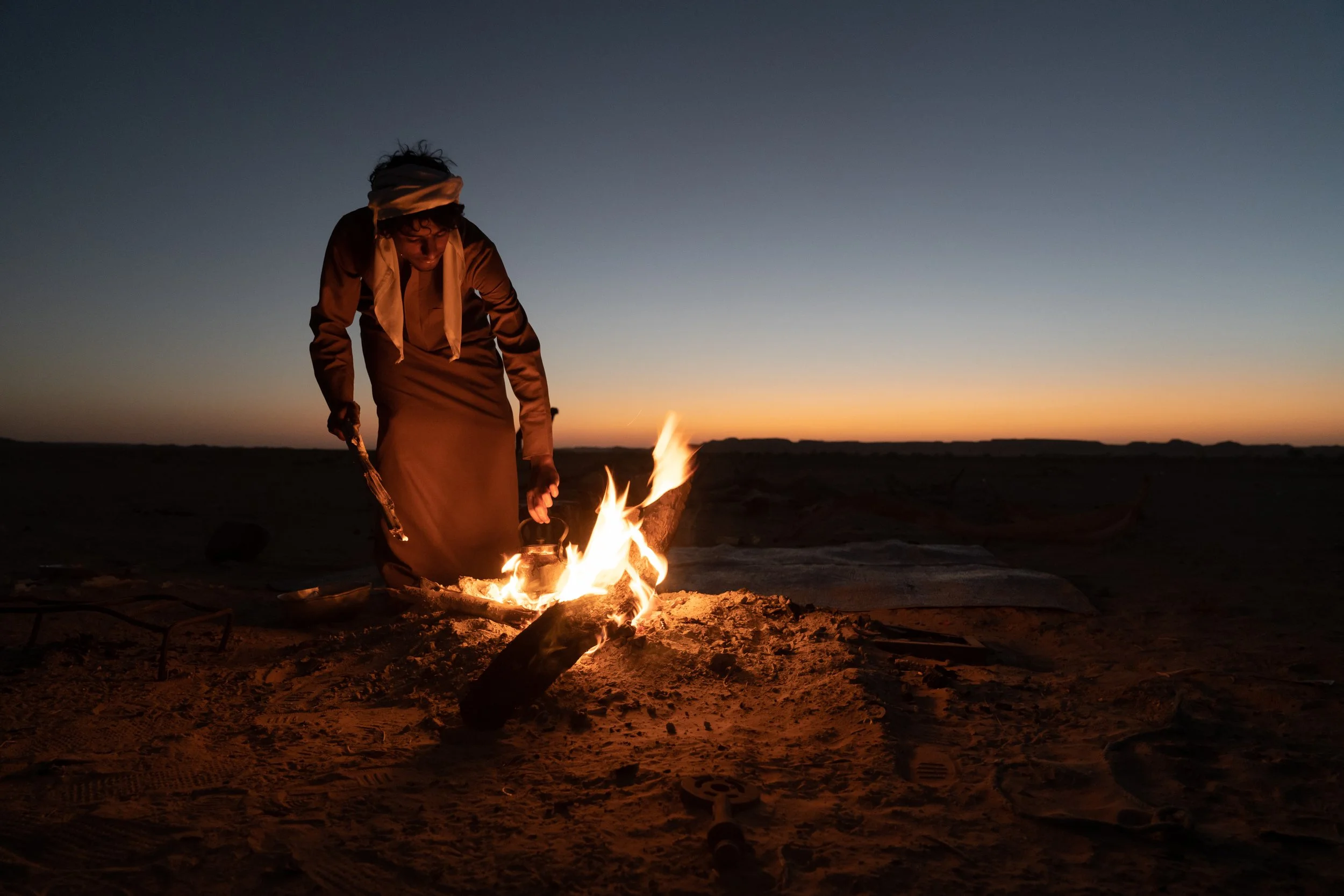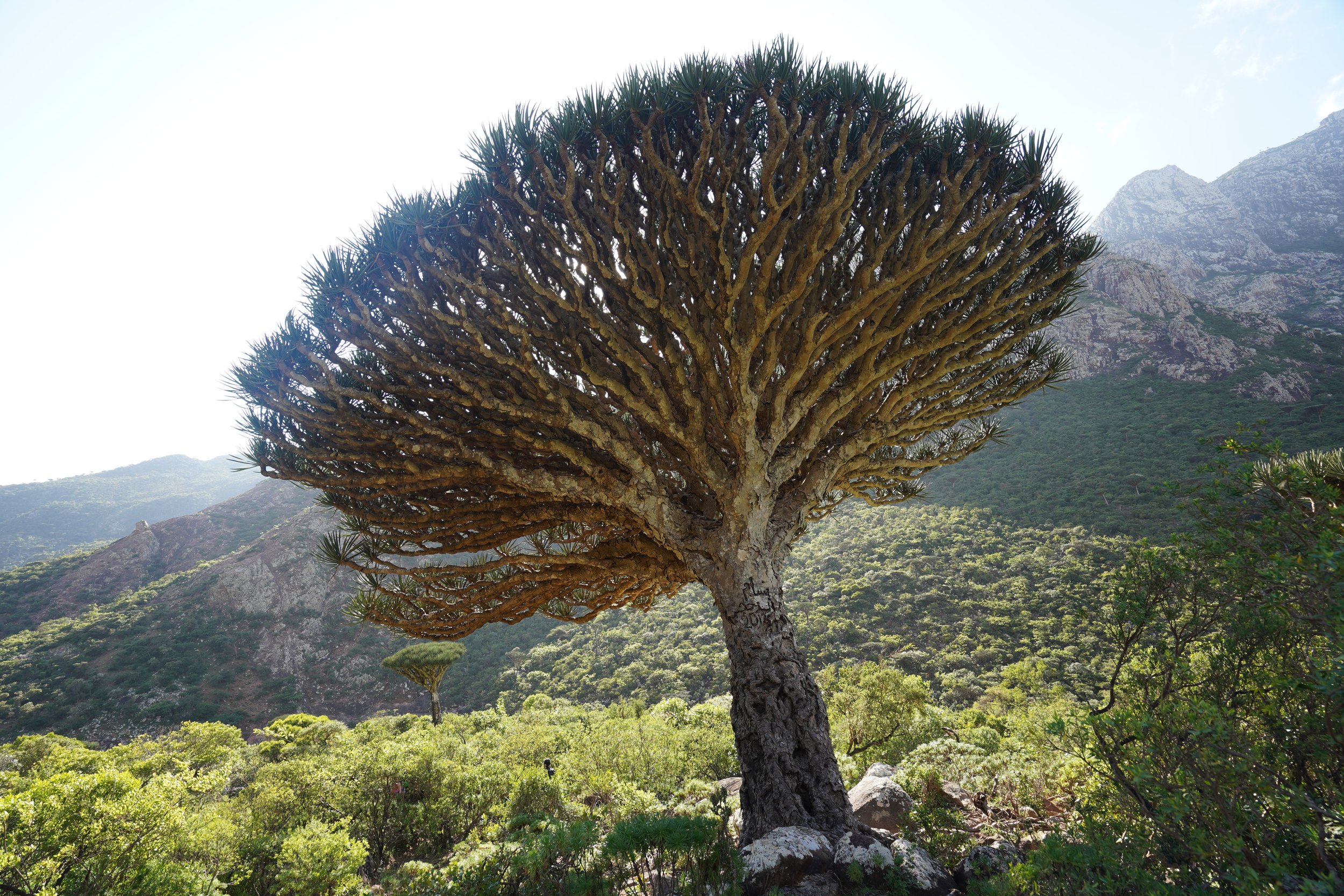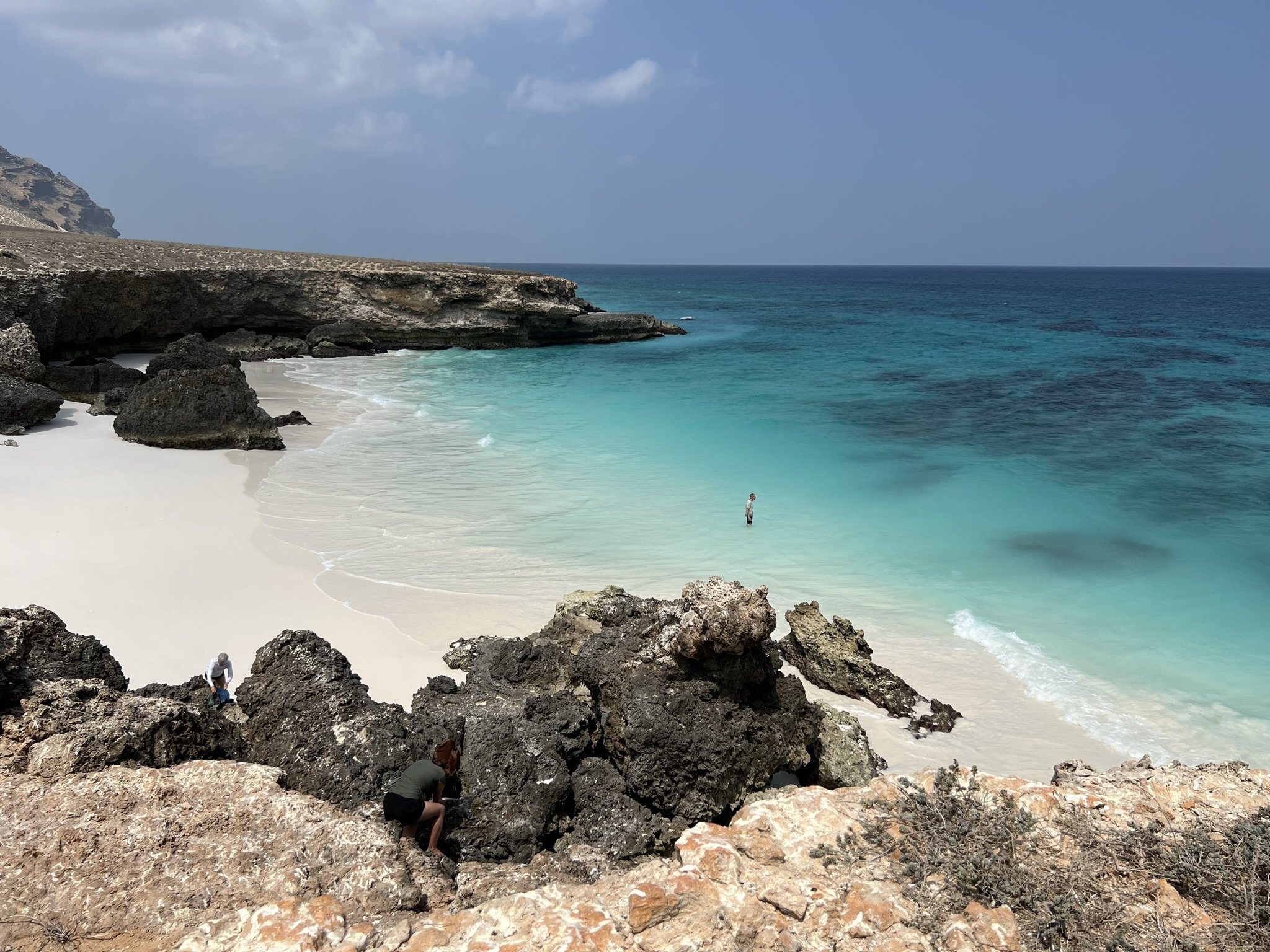YEMEN: Eastern and Central Regions Overland Loop (10 days)
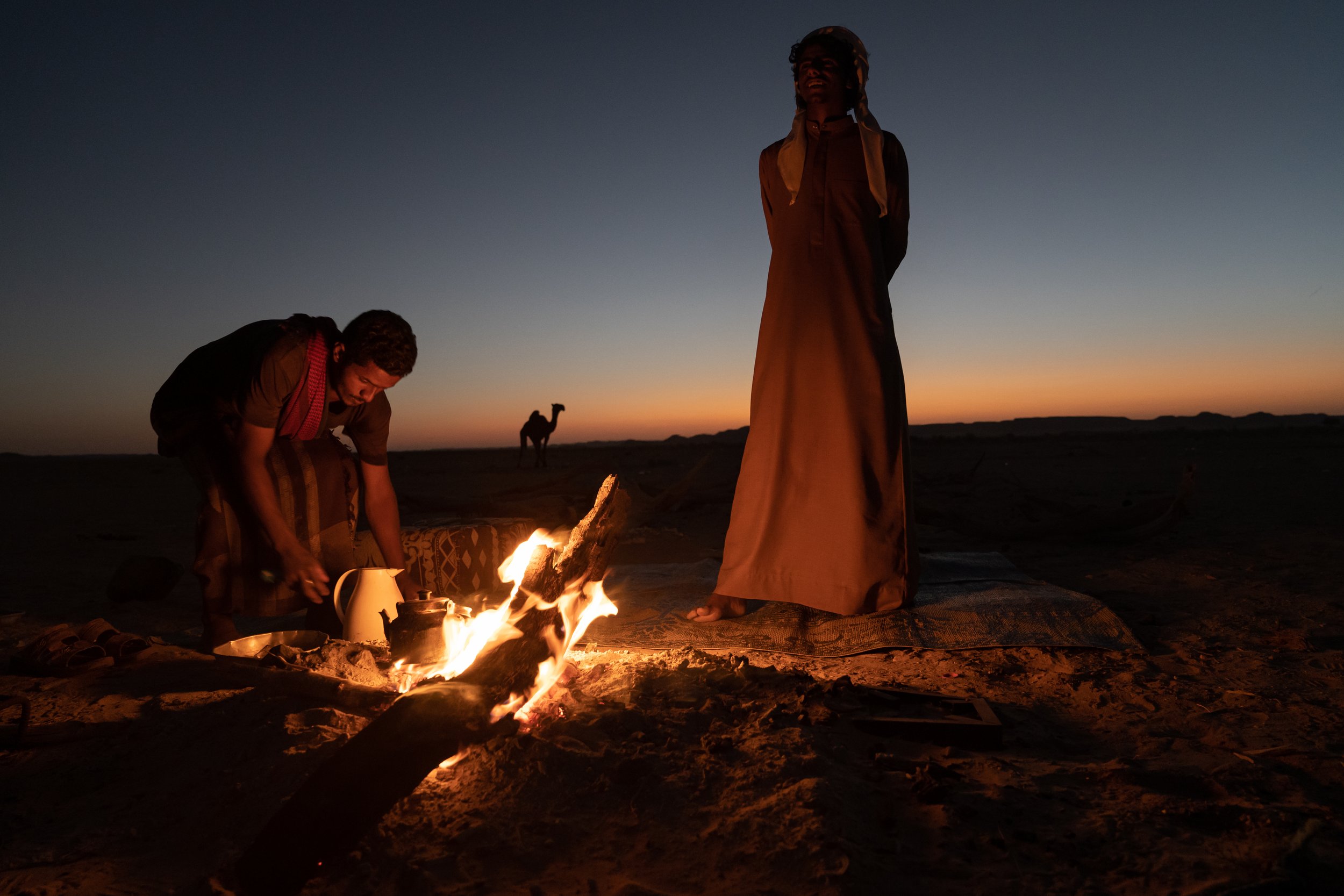
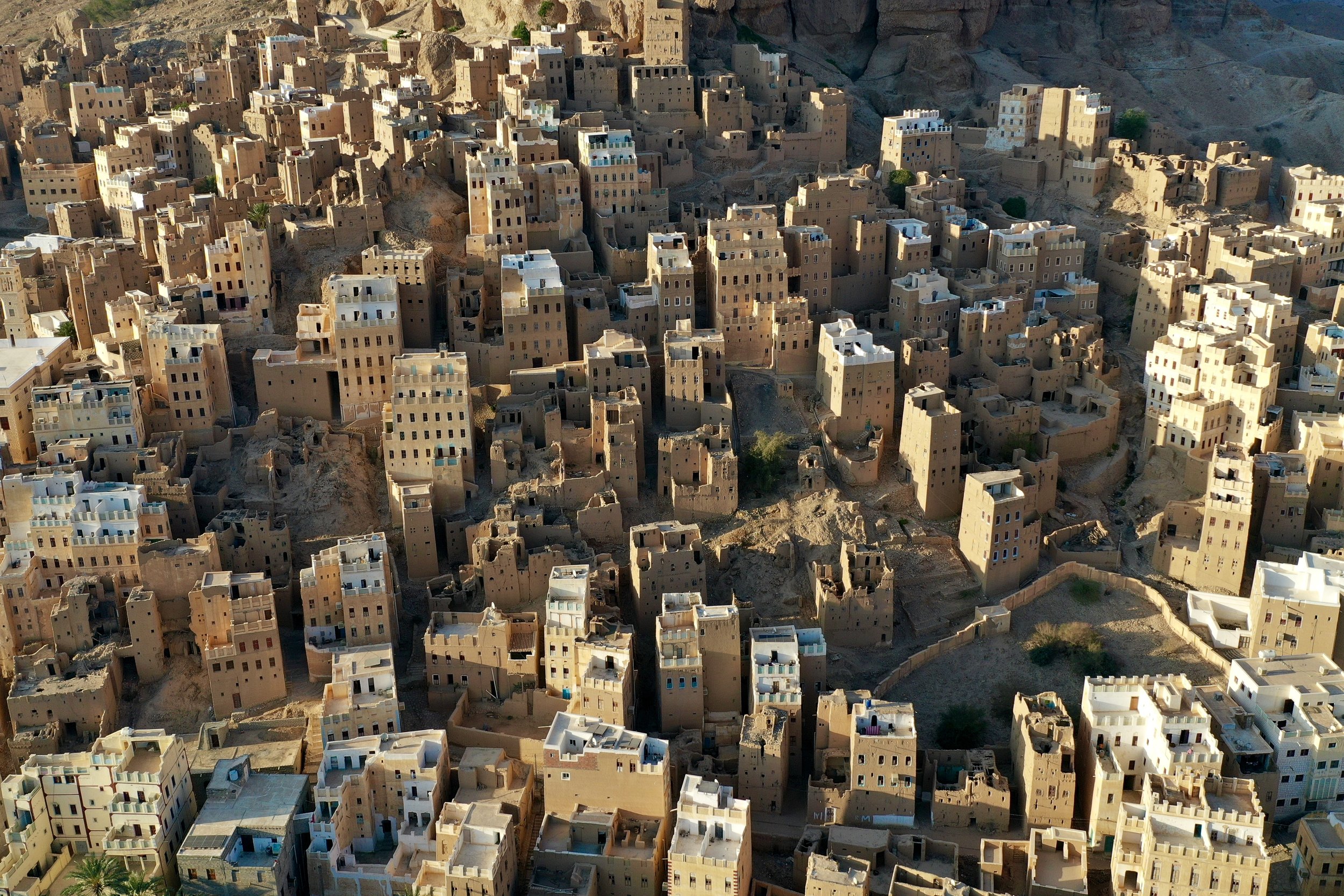
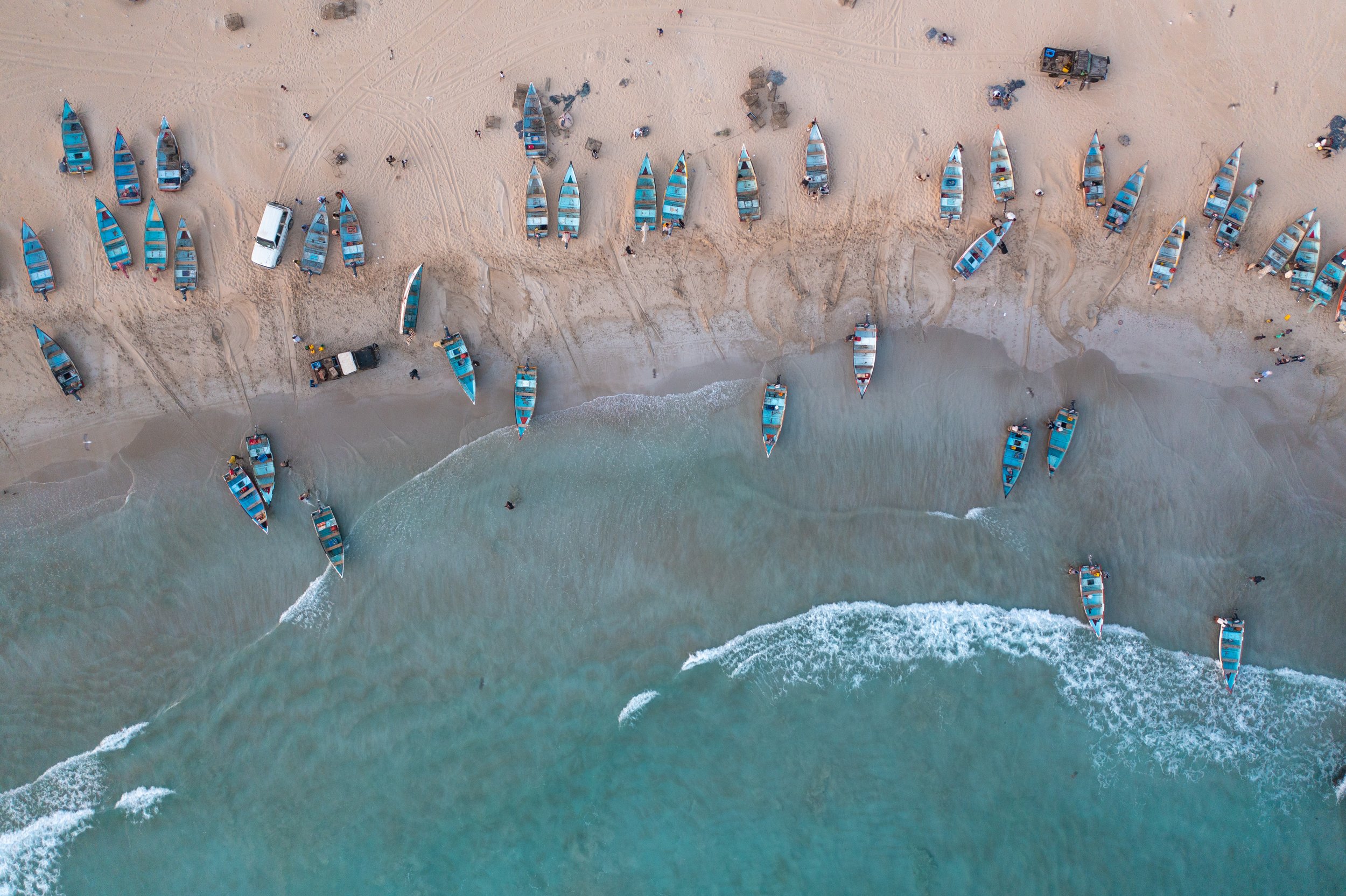
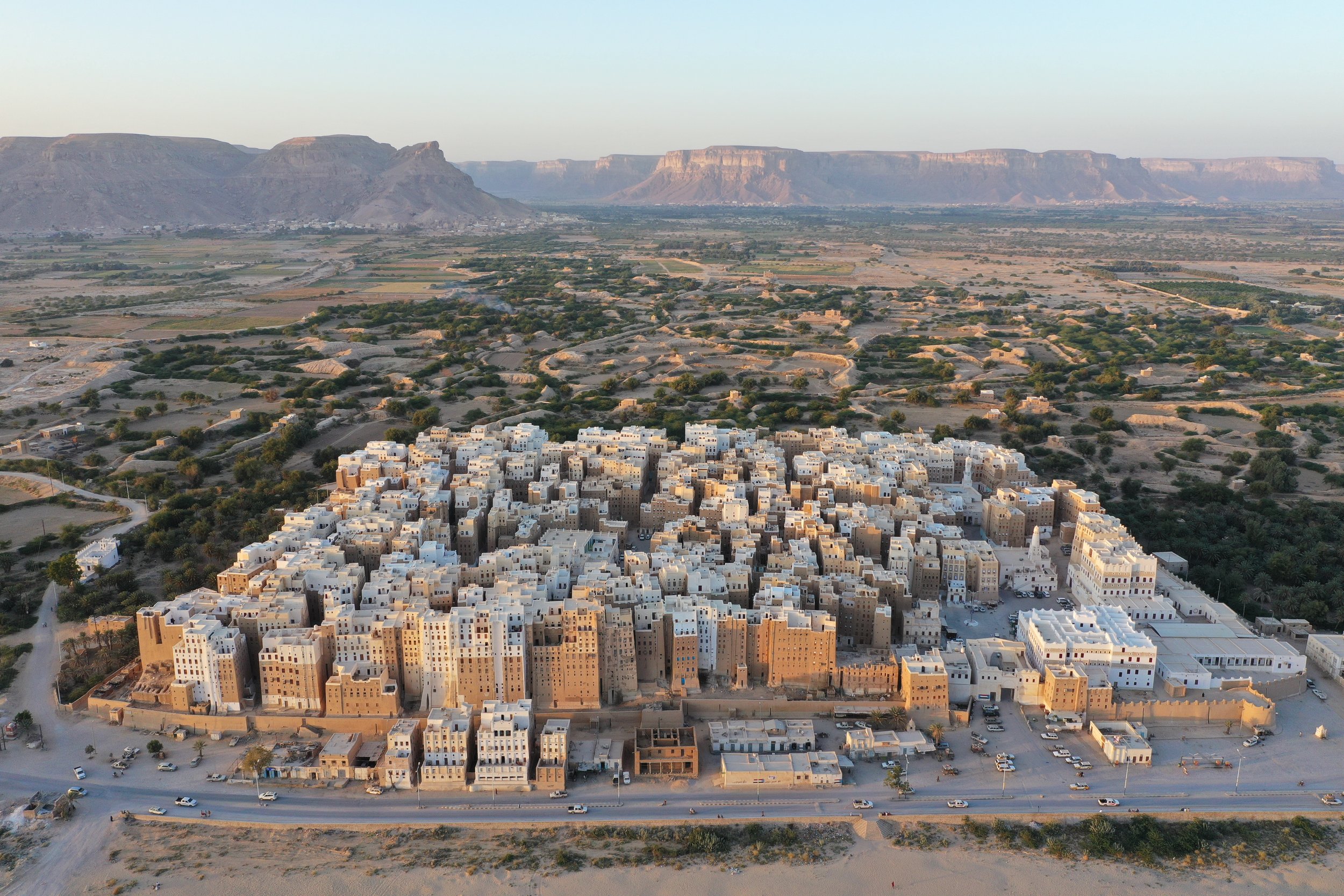
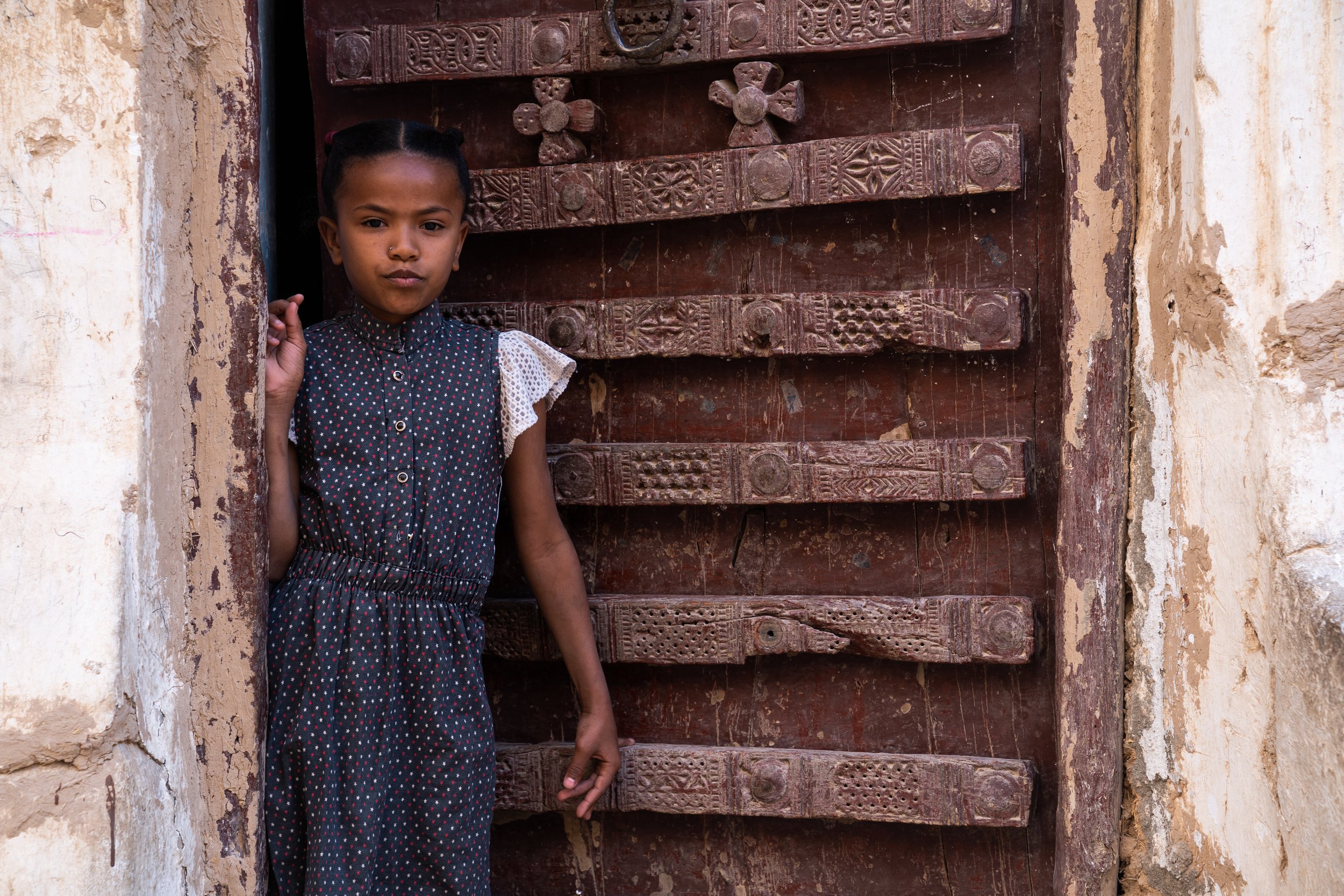
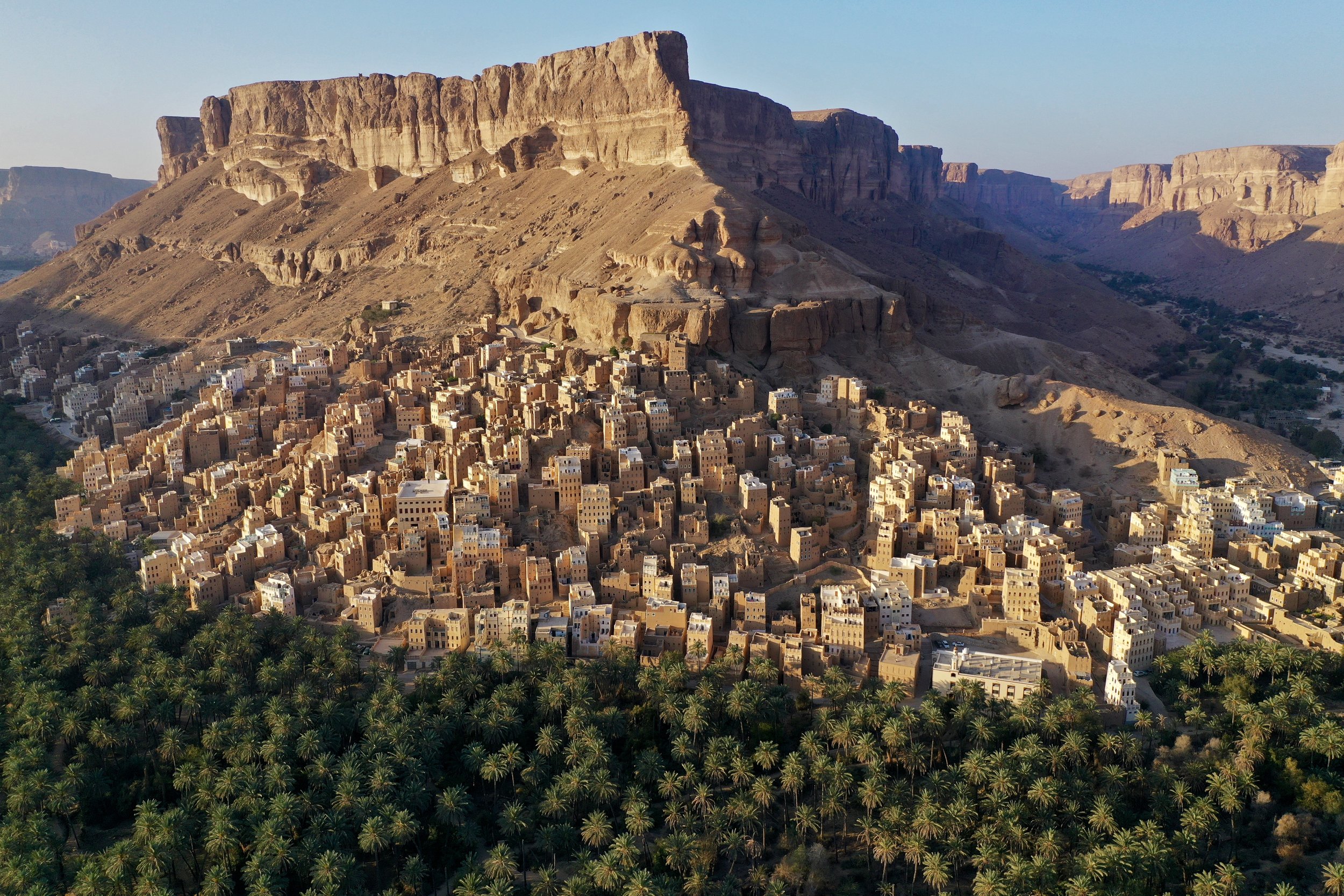
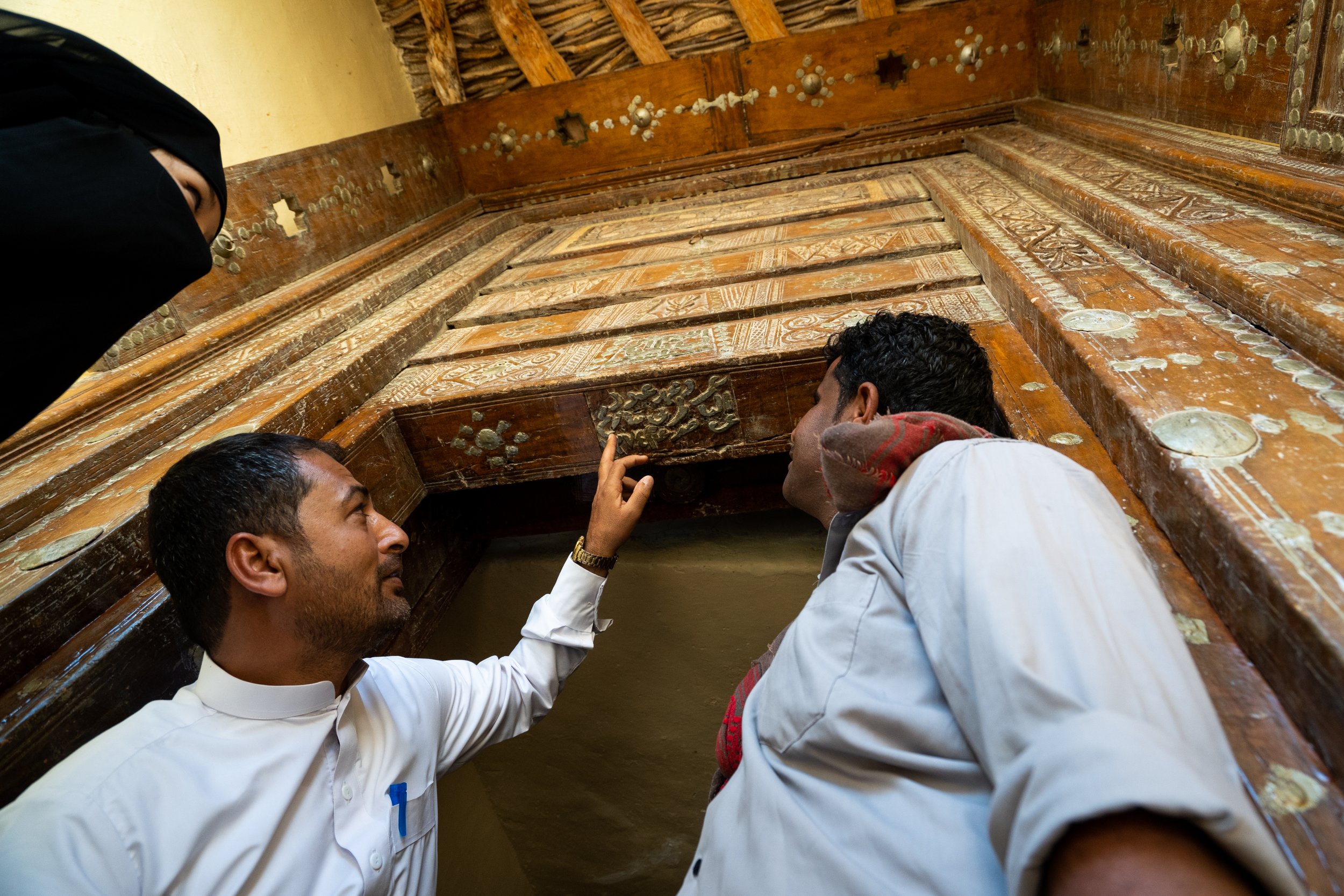
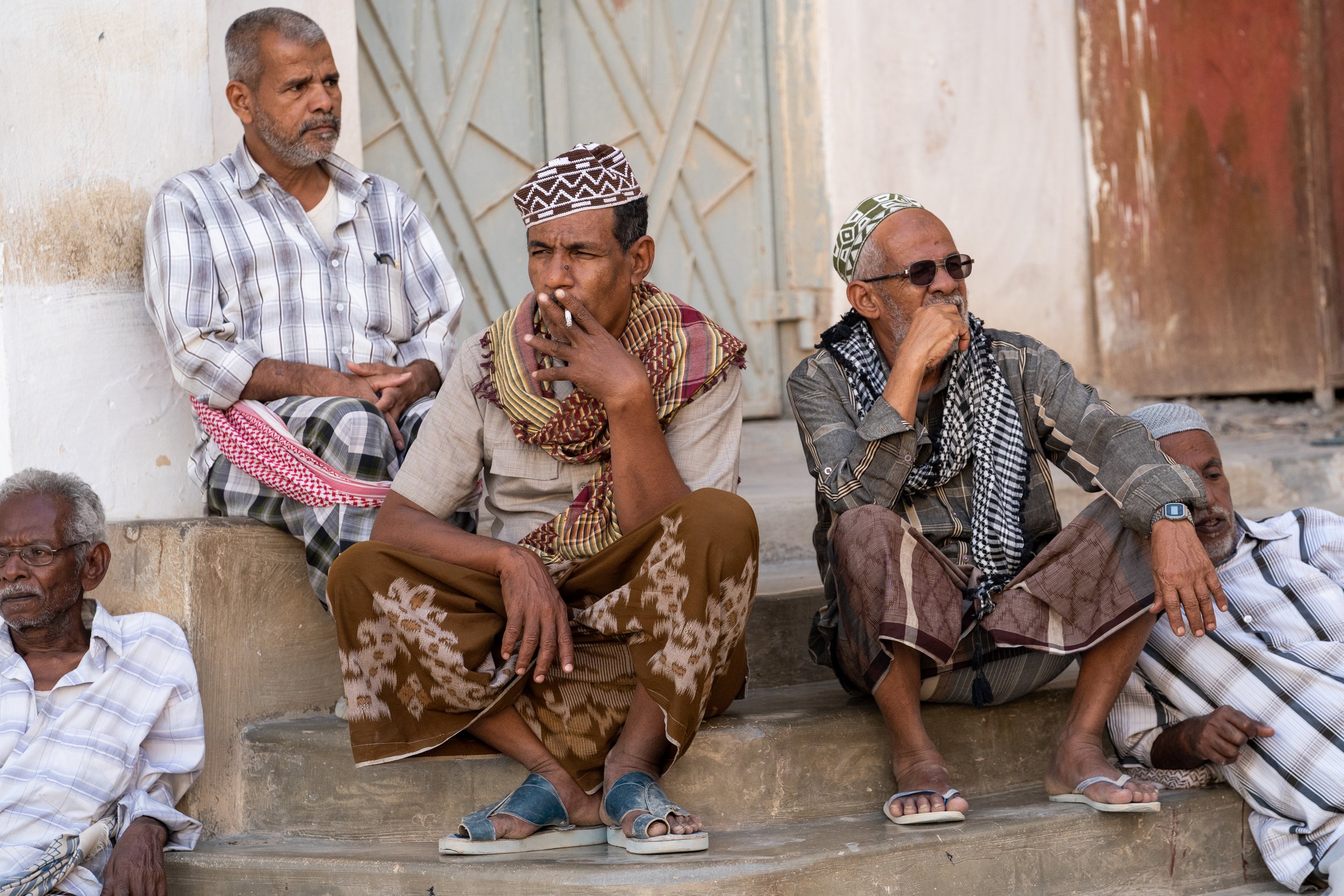
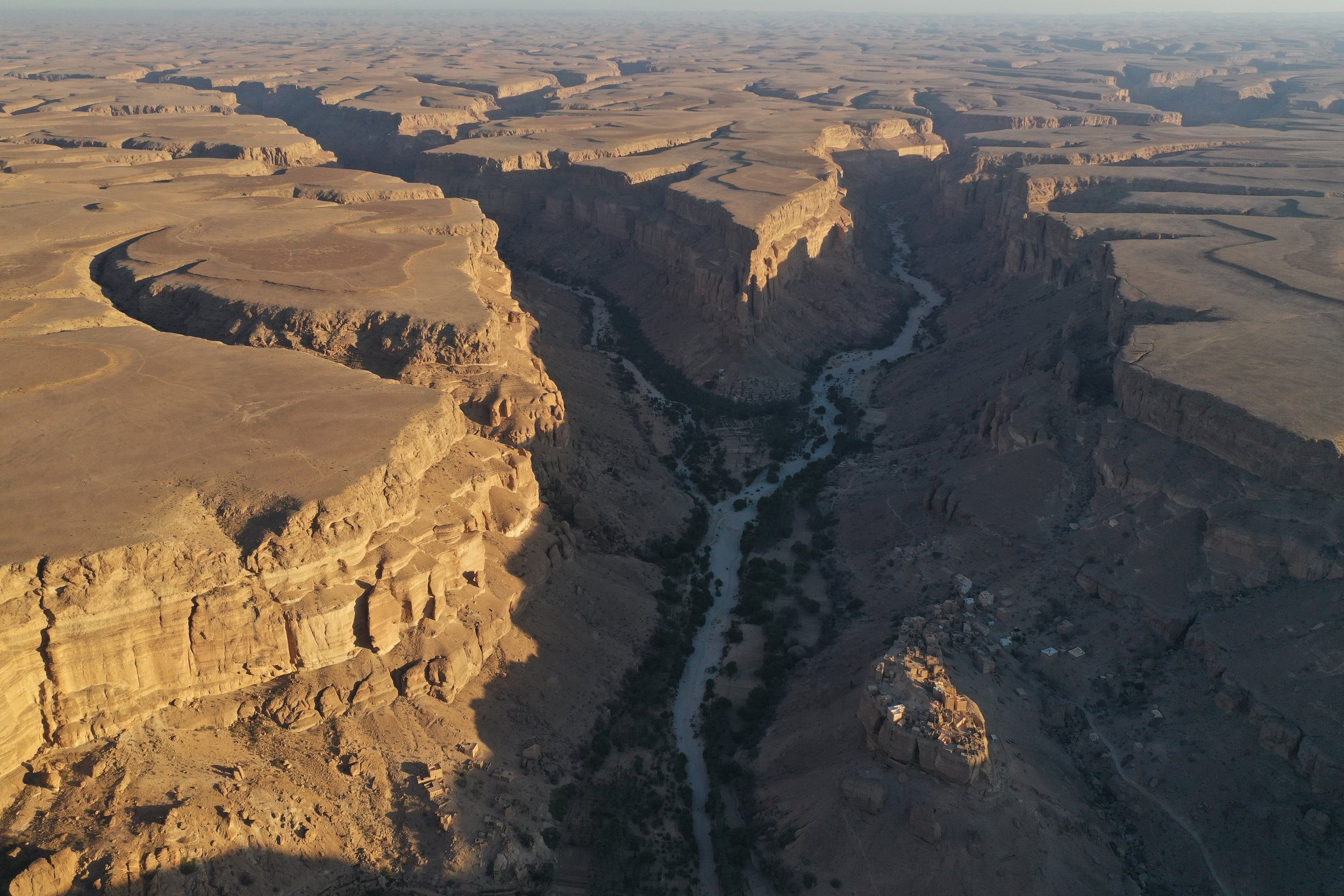
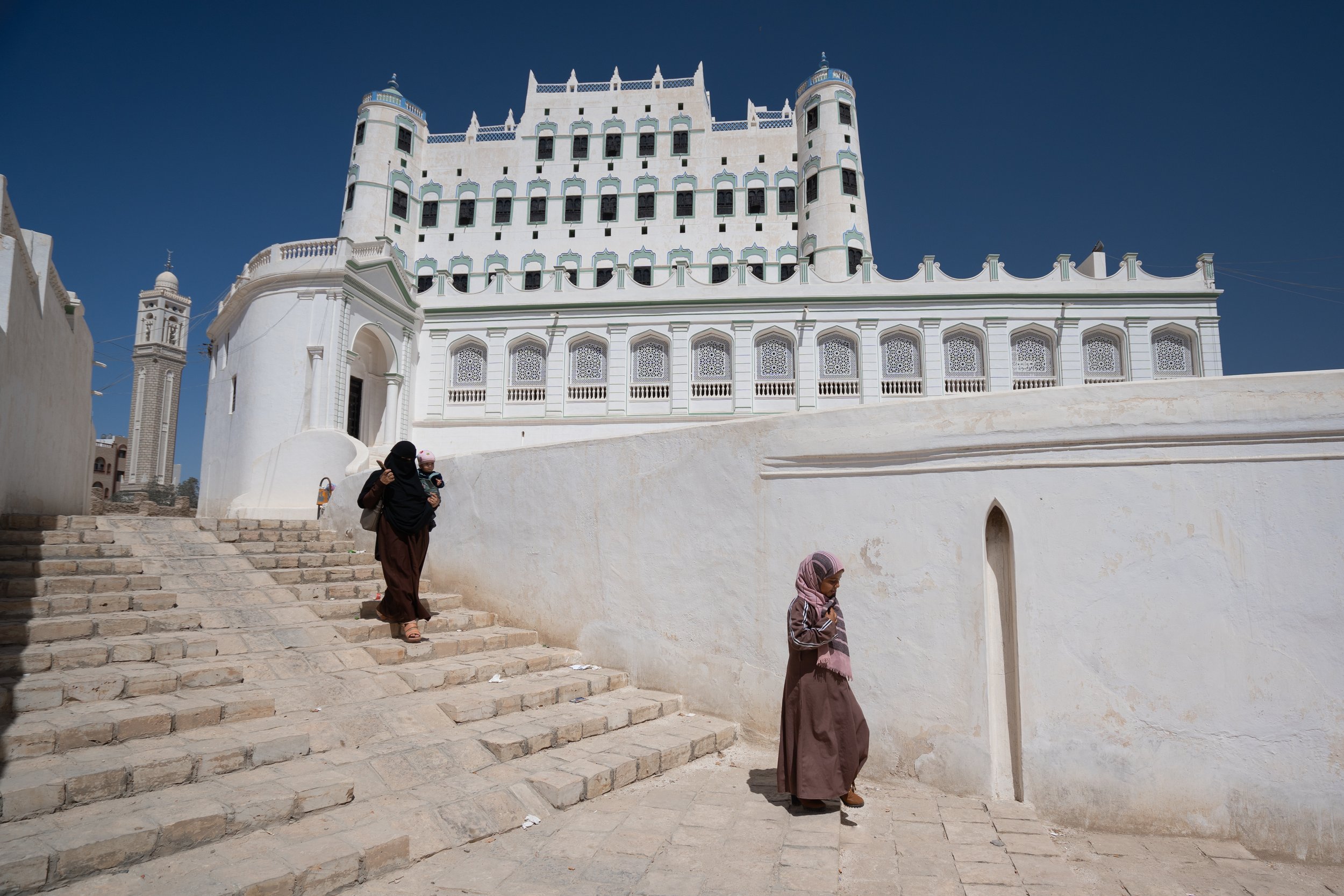
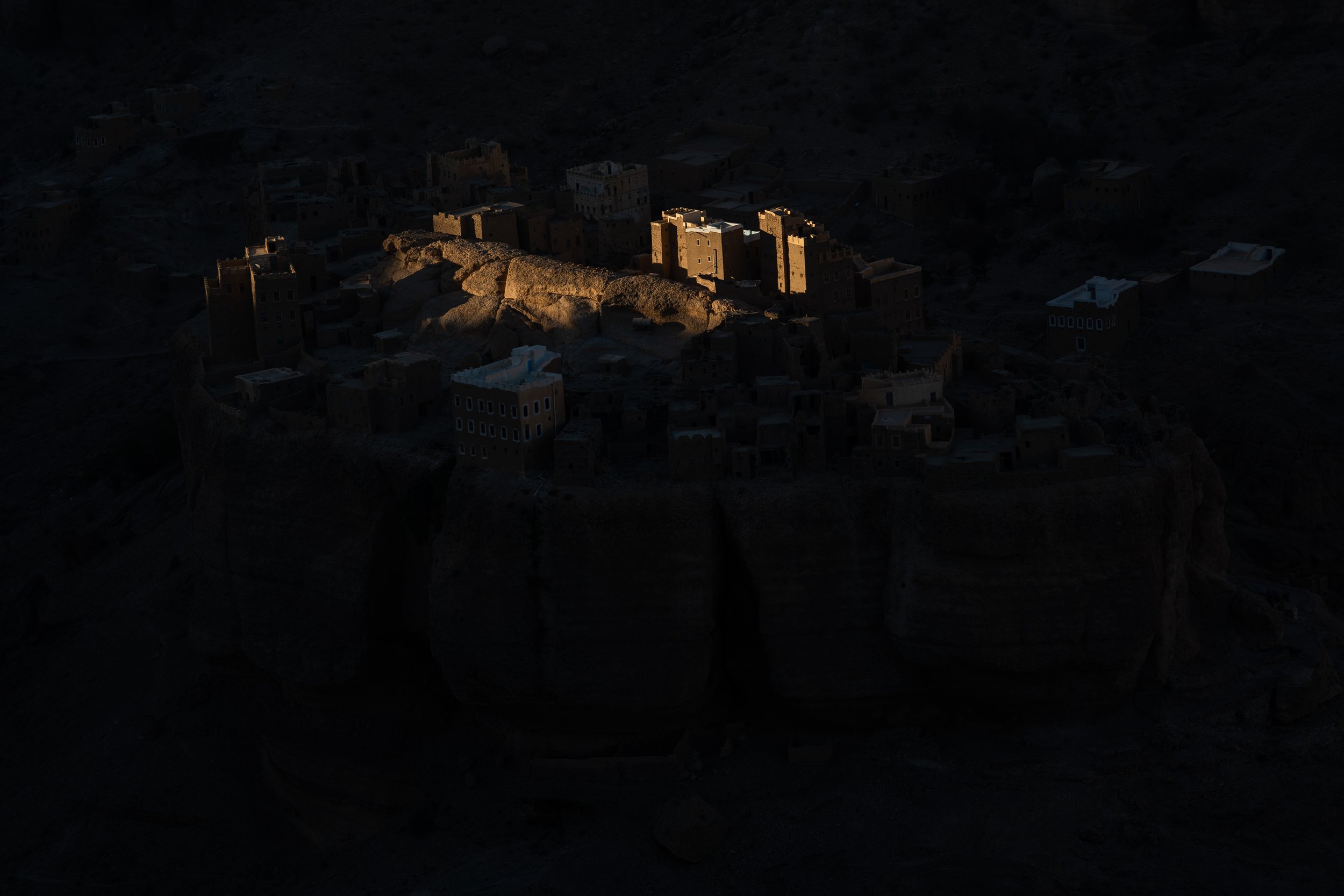

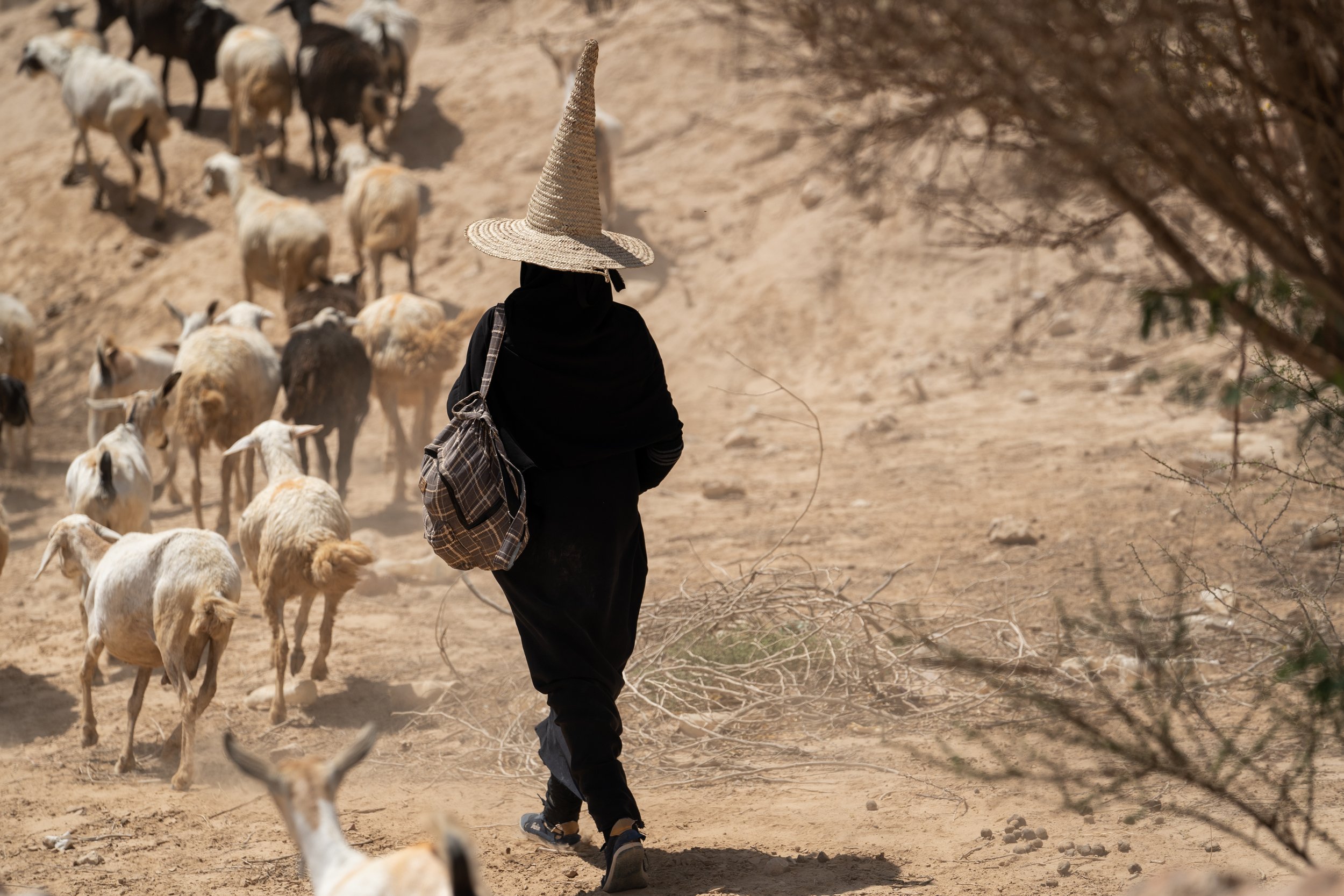
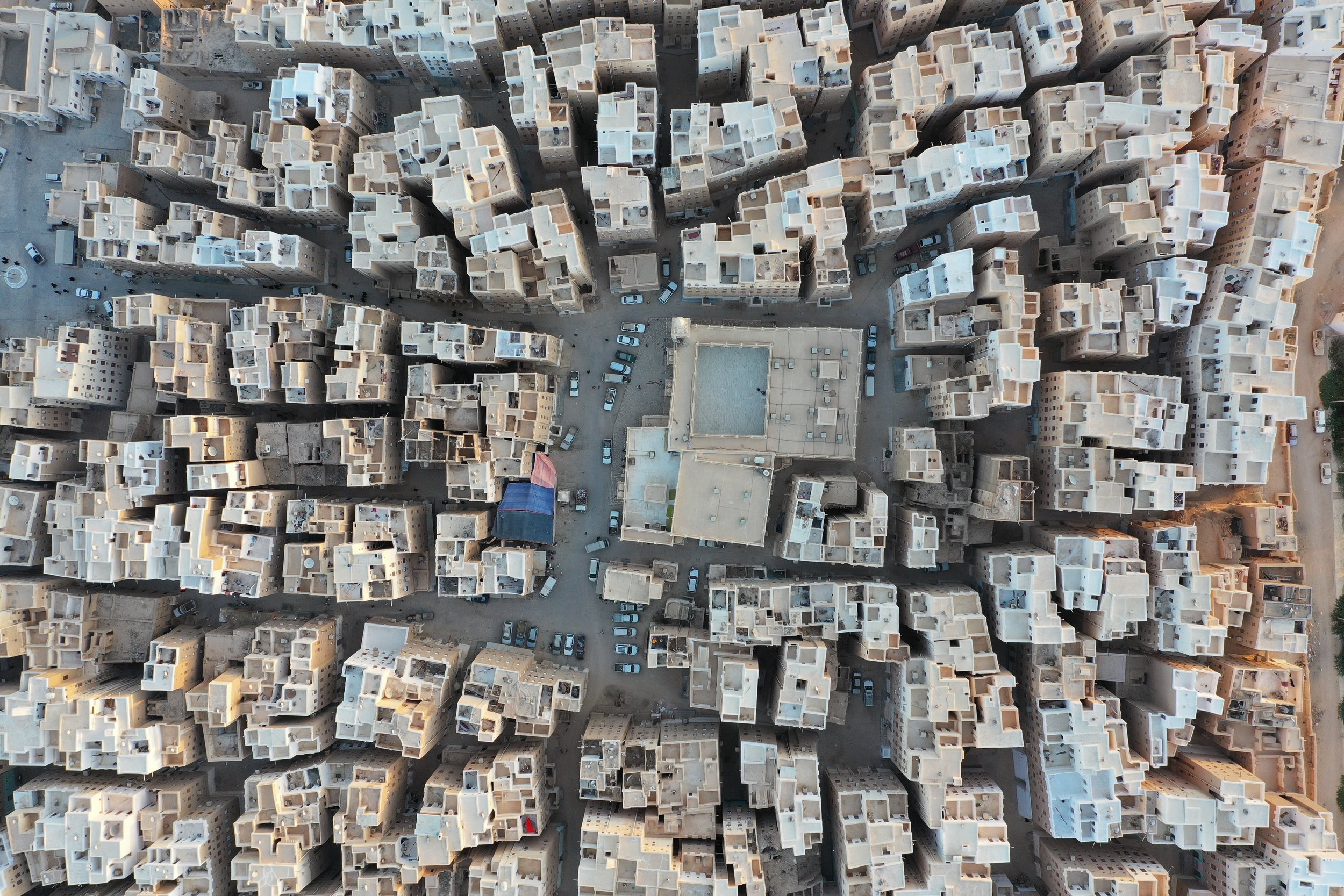
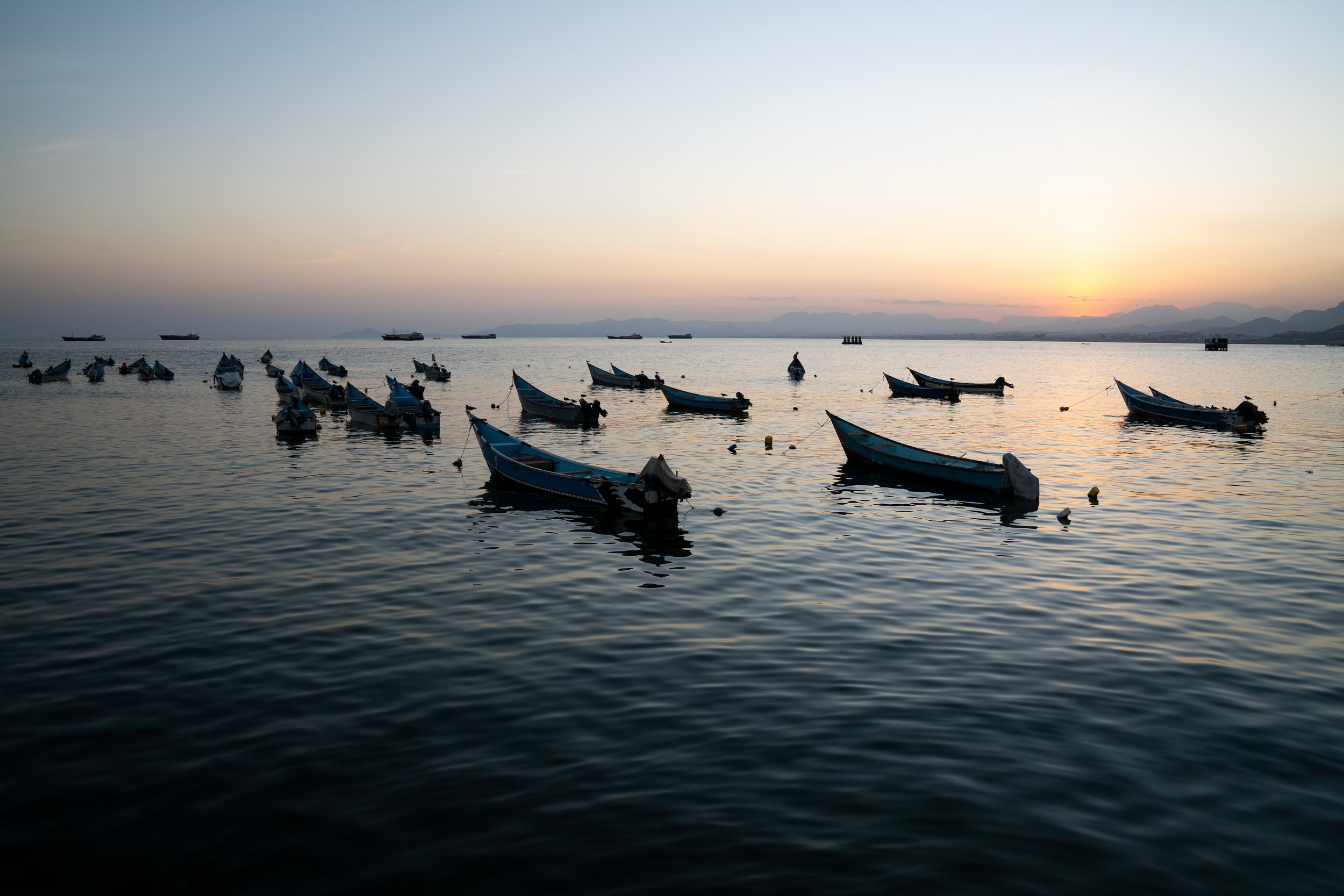
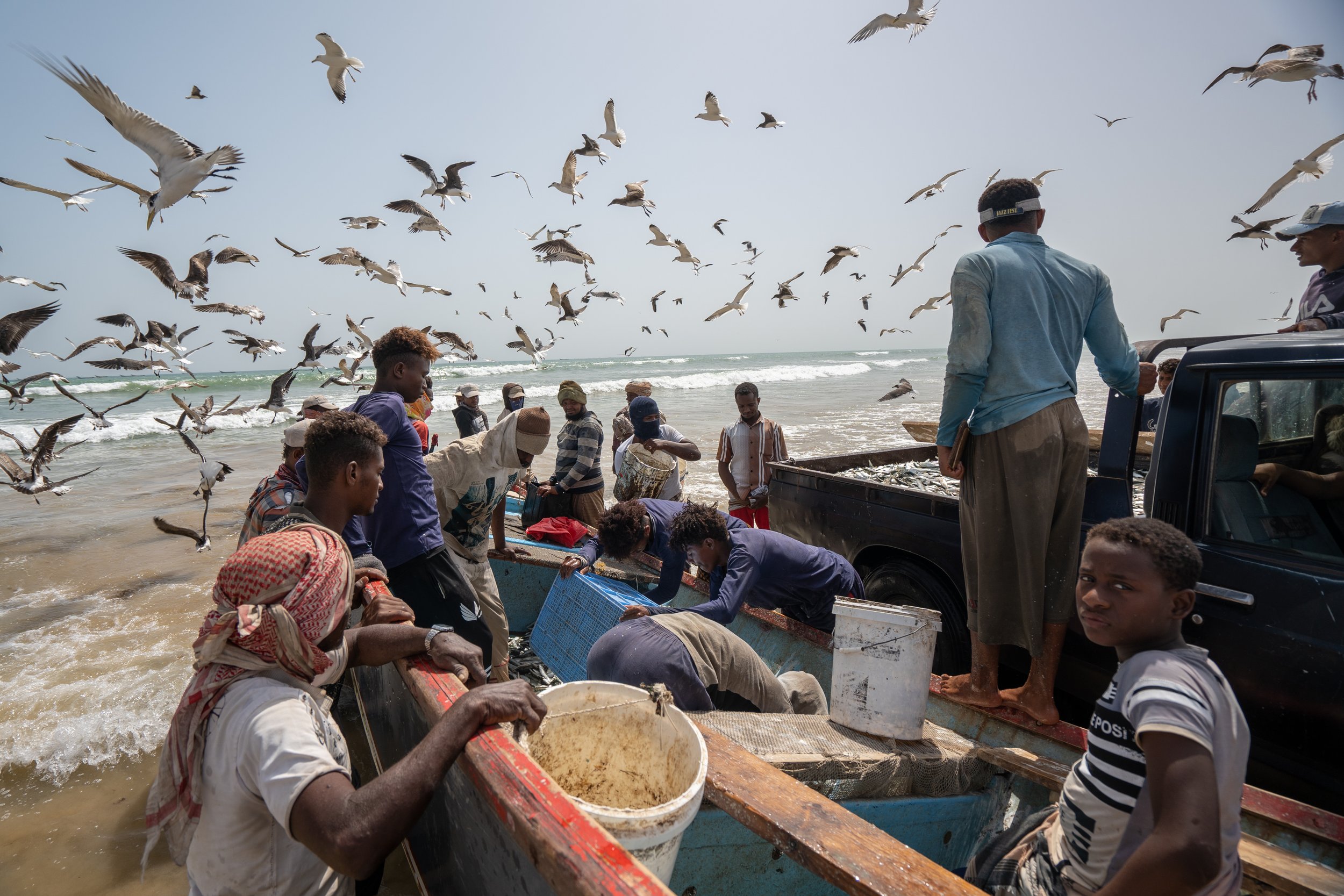
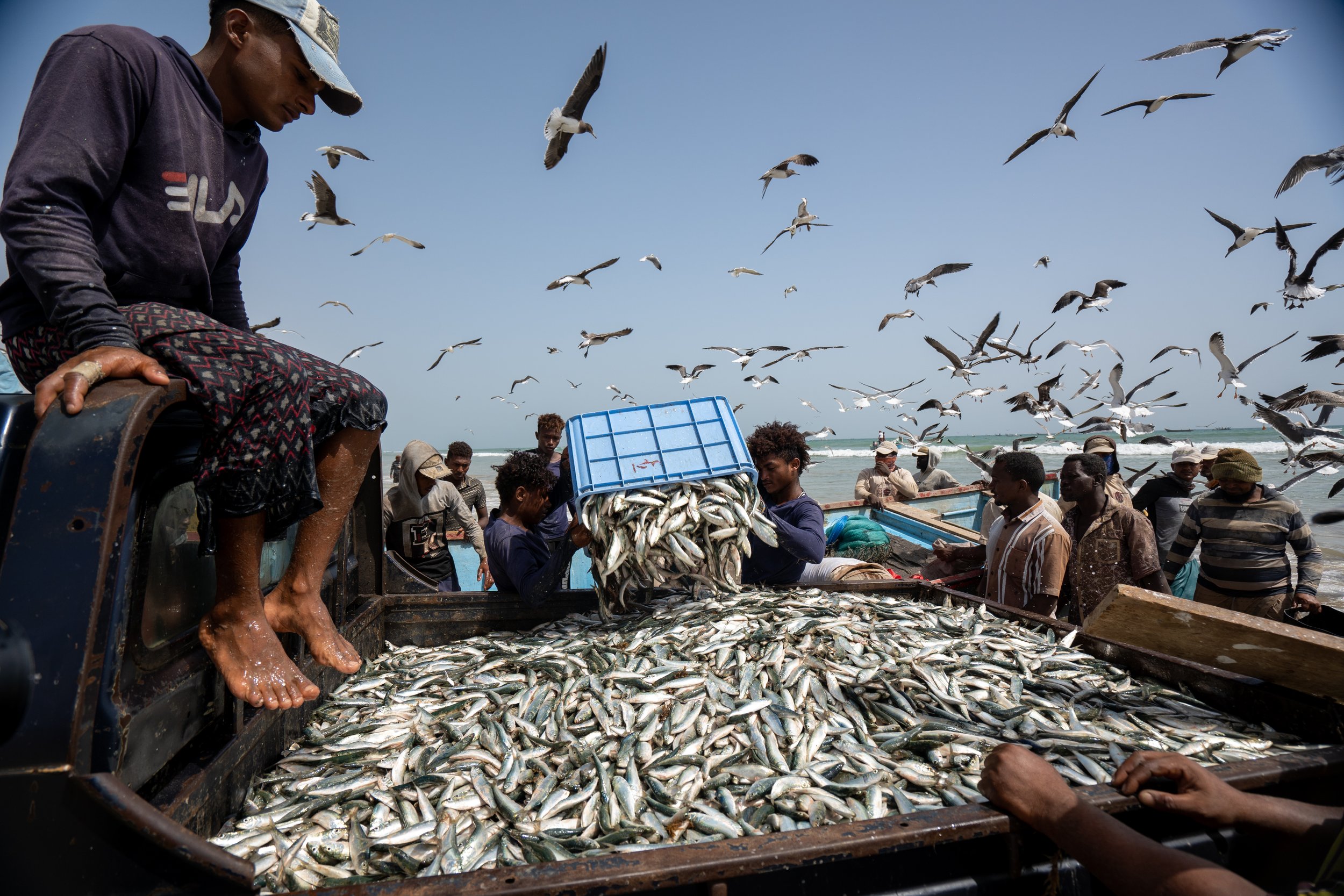
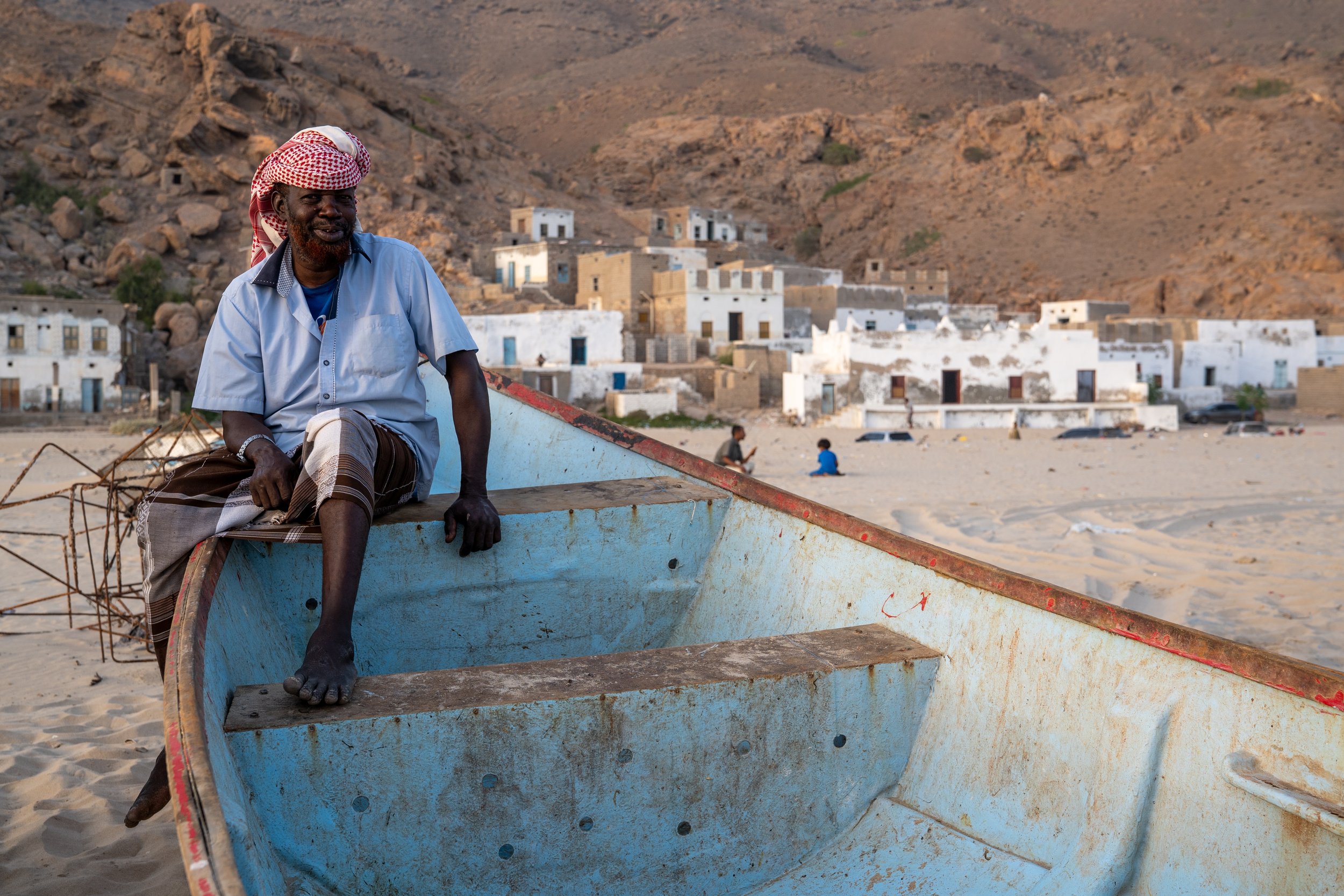
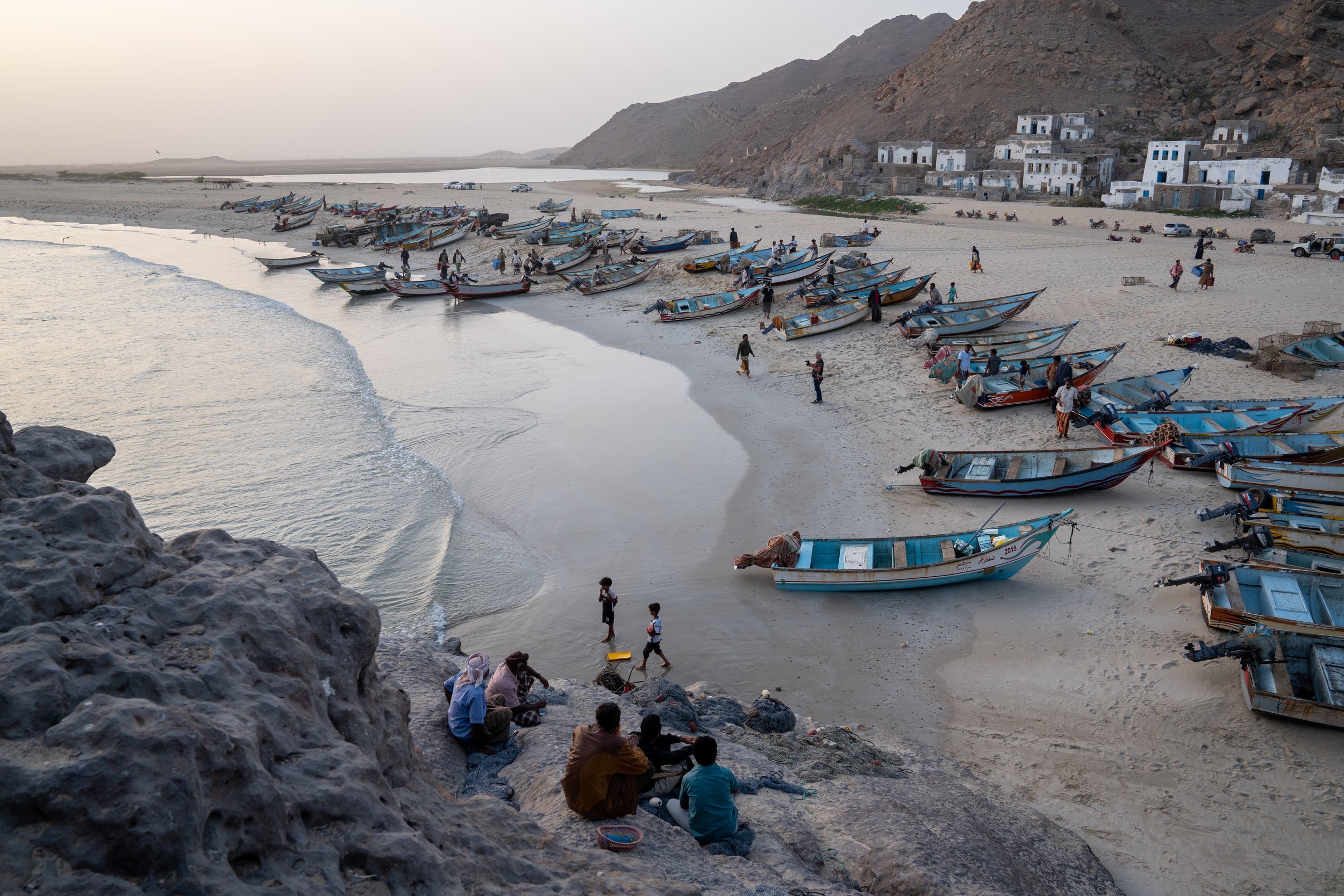
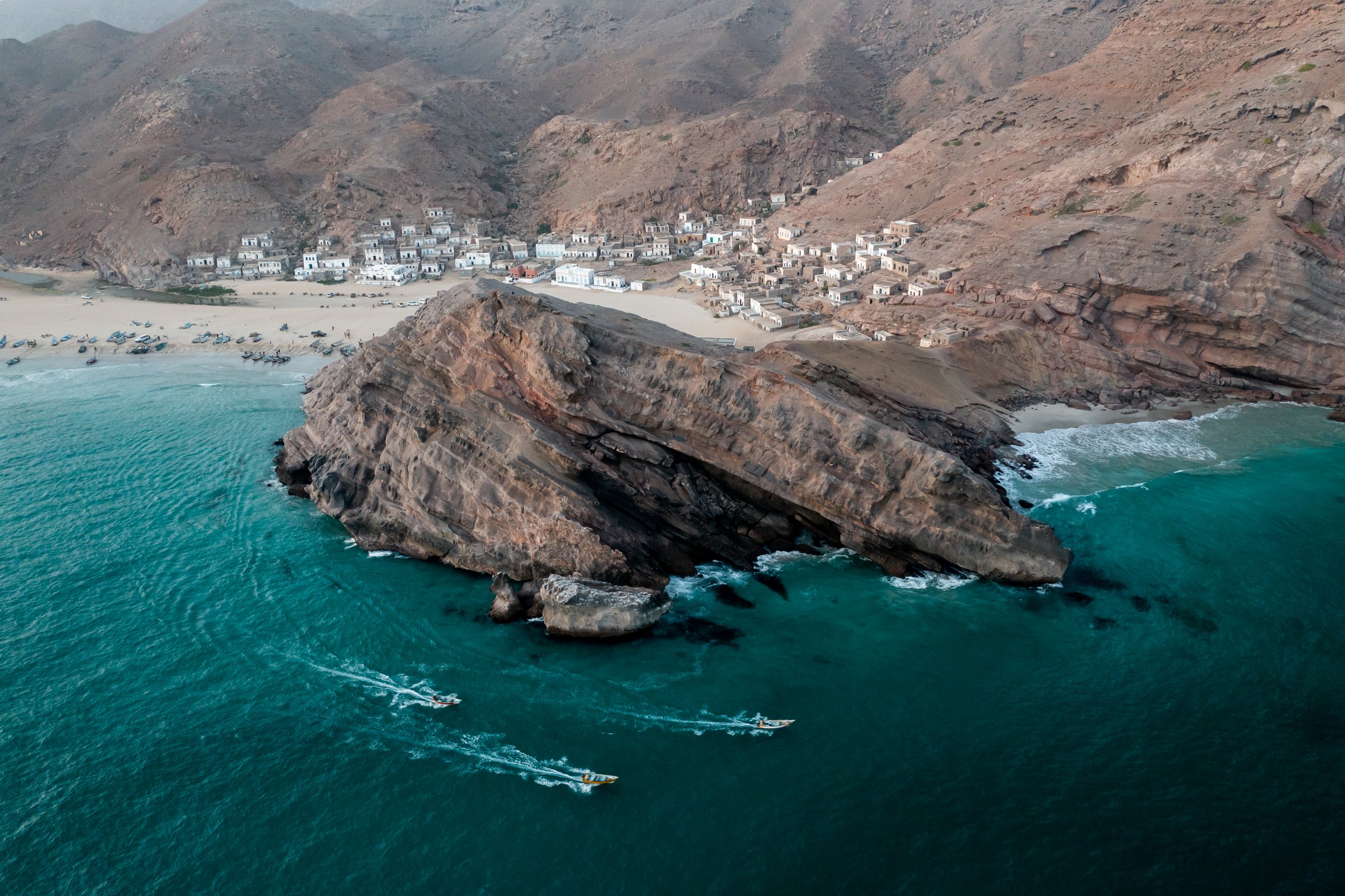
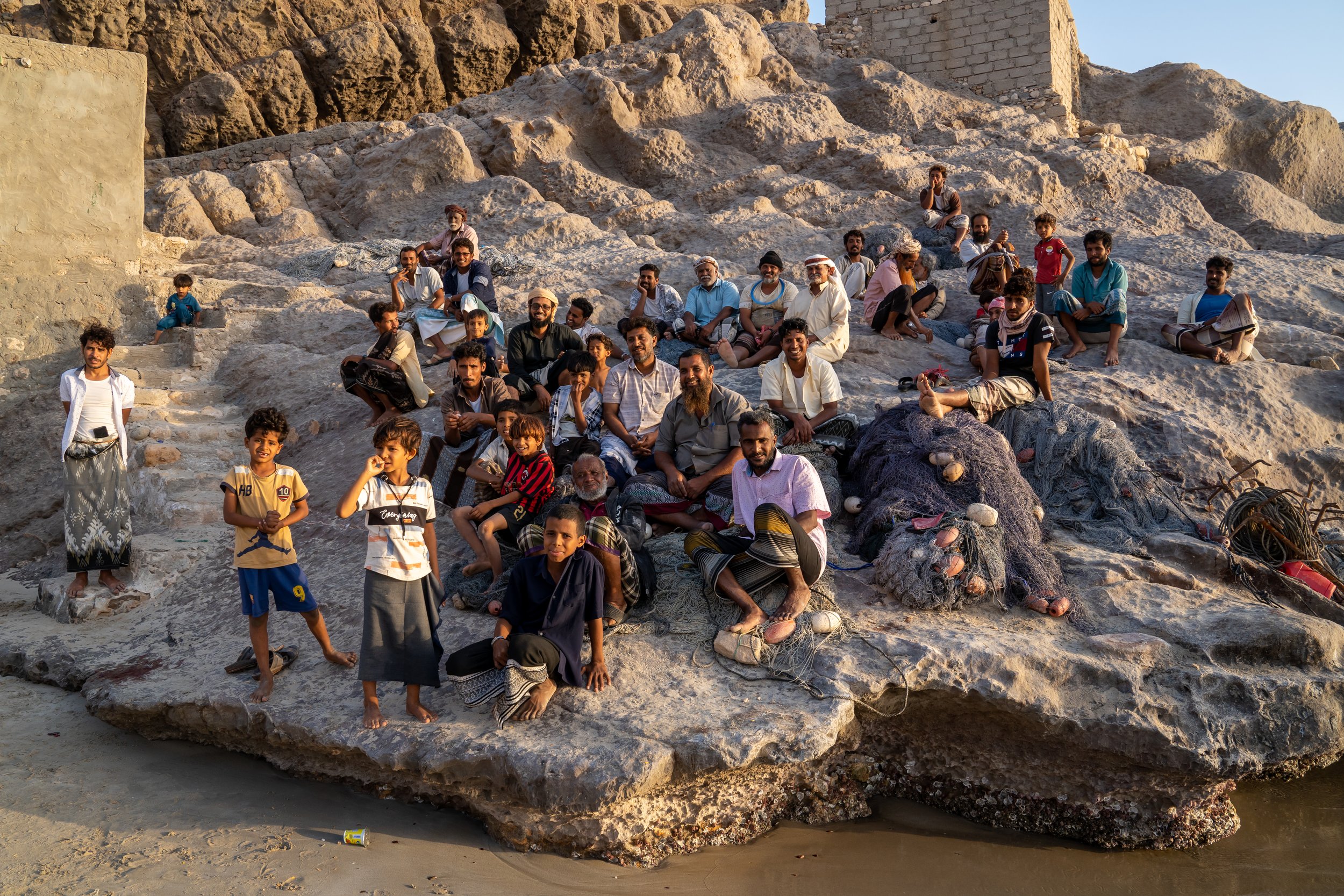
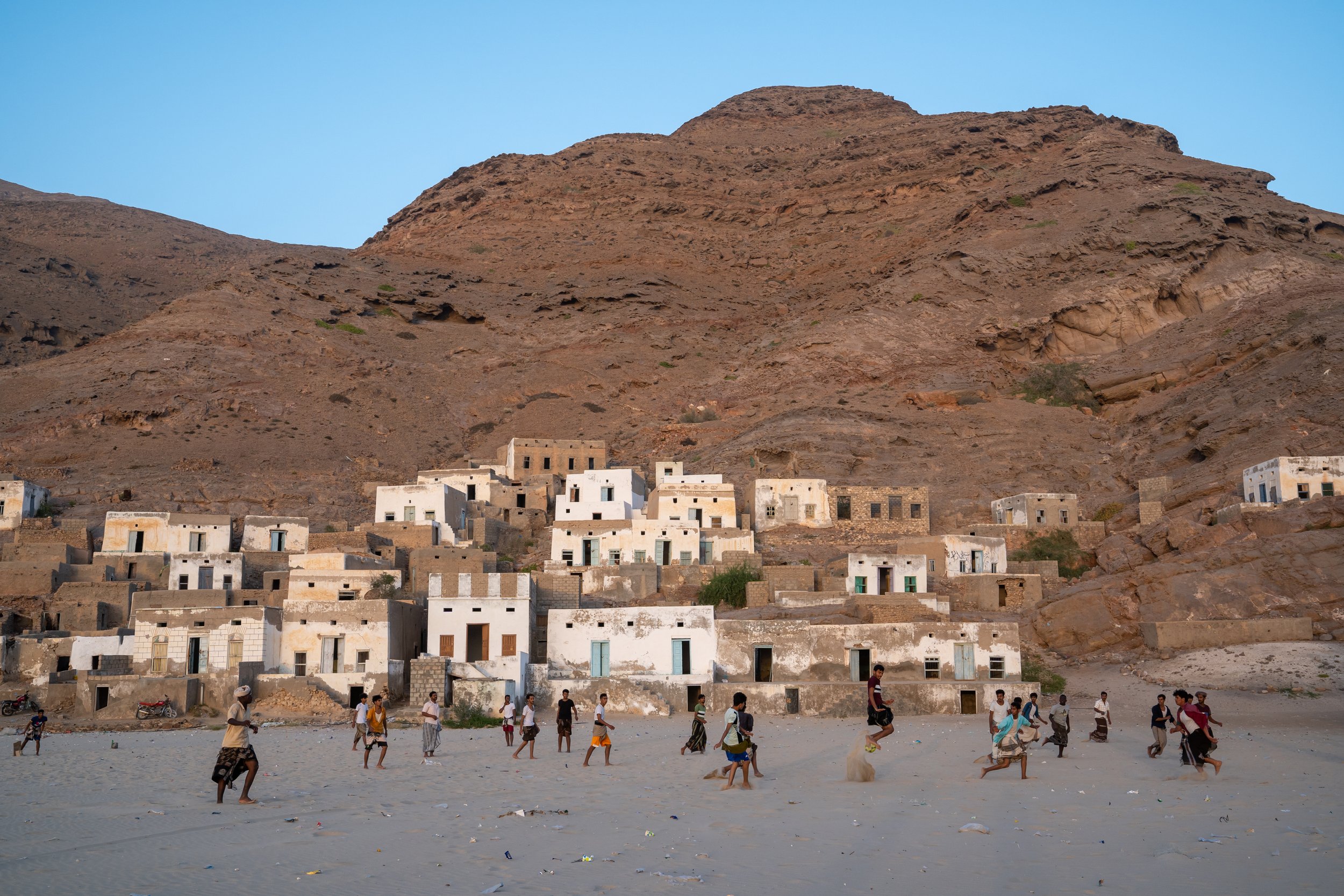
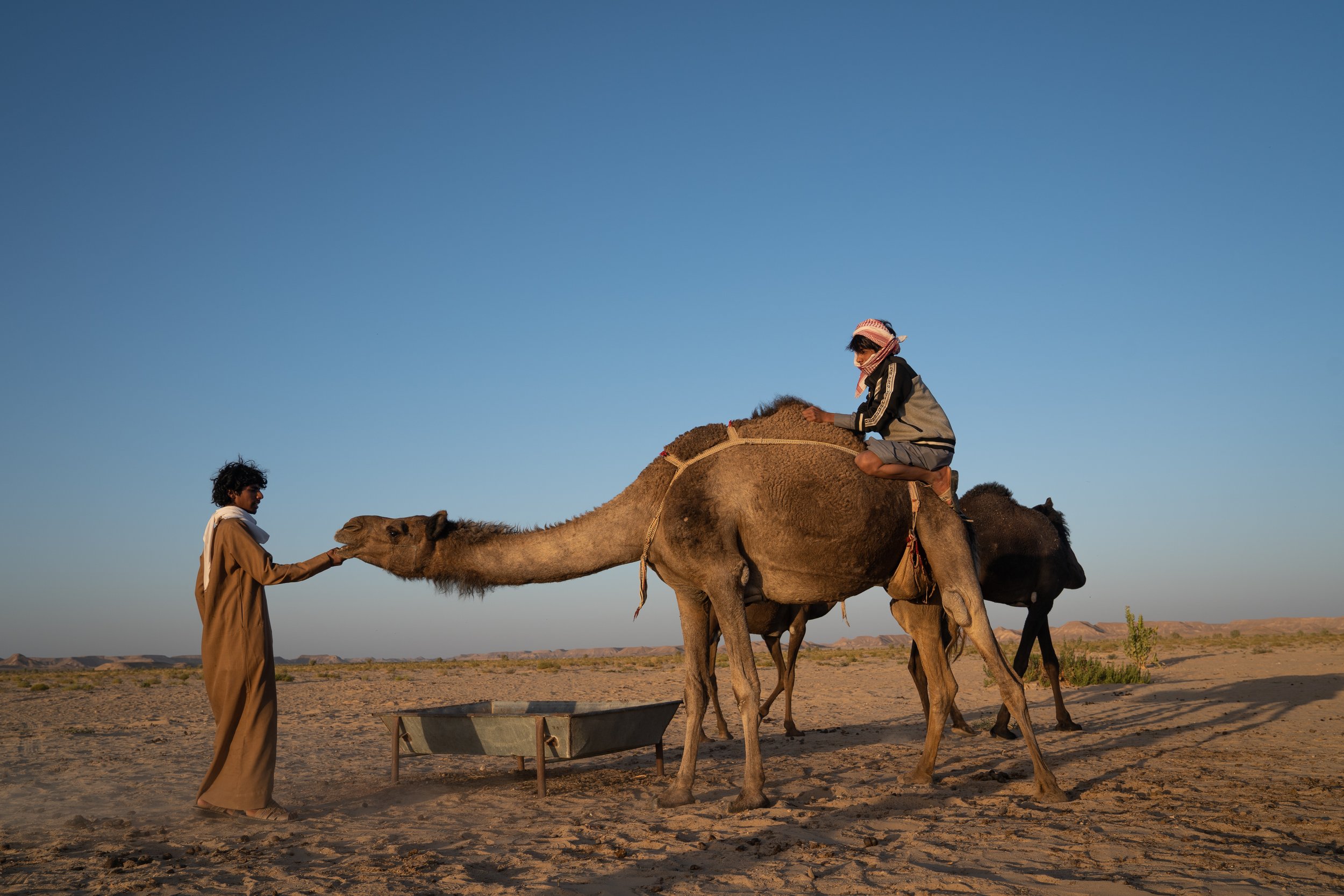
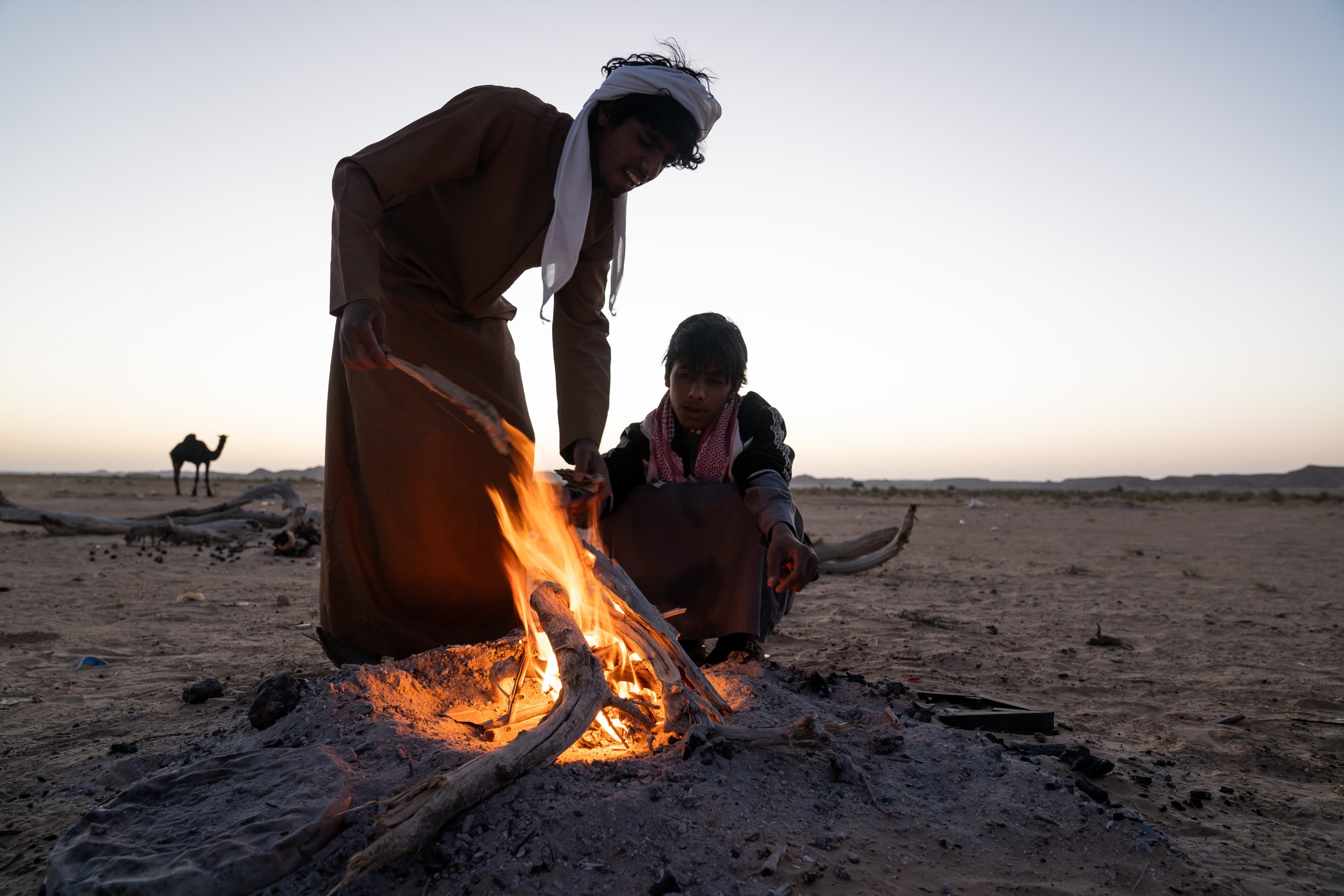
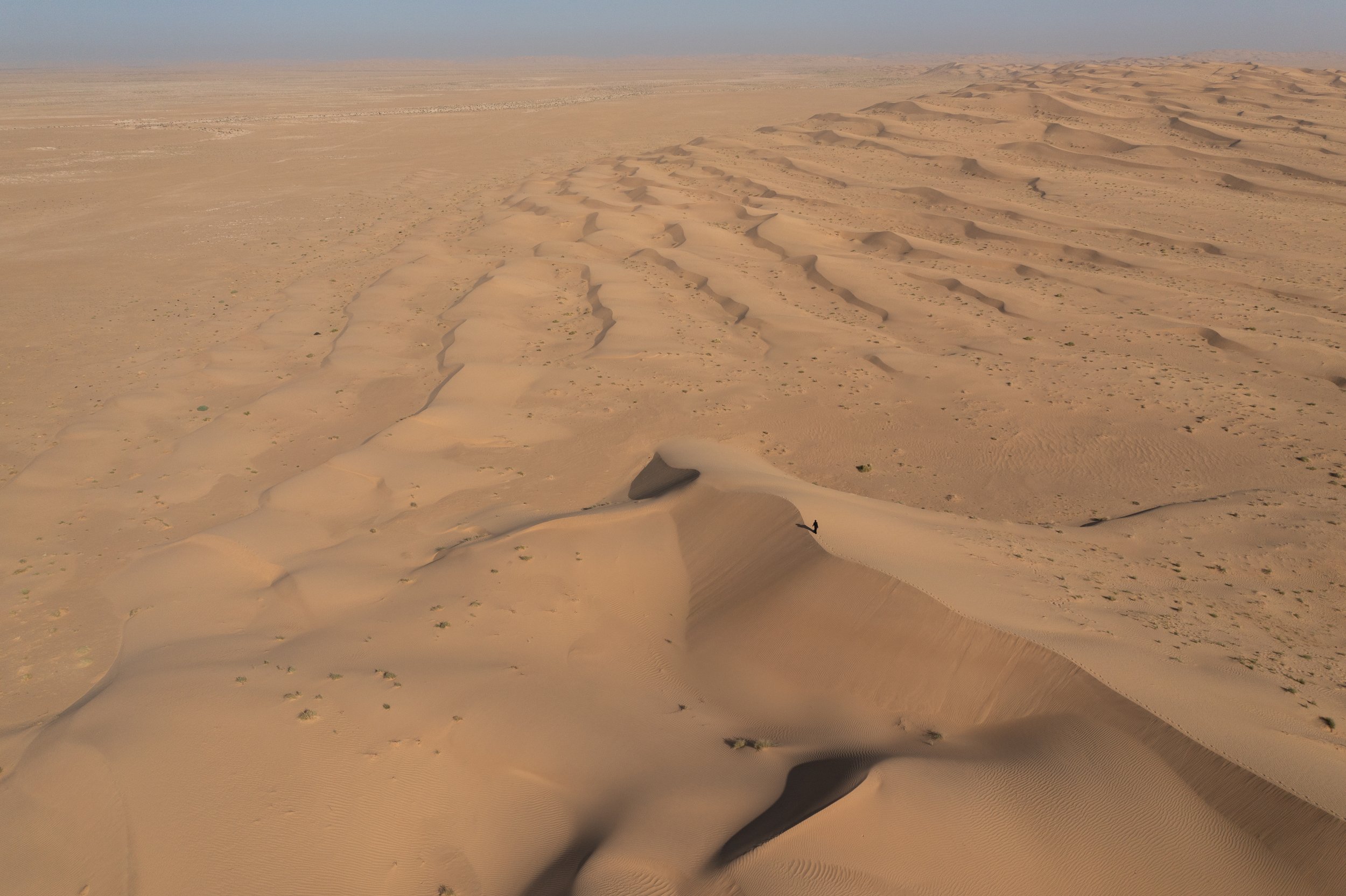
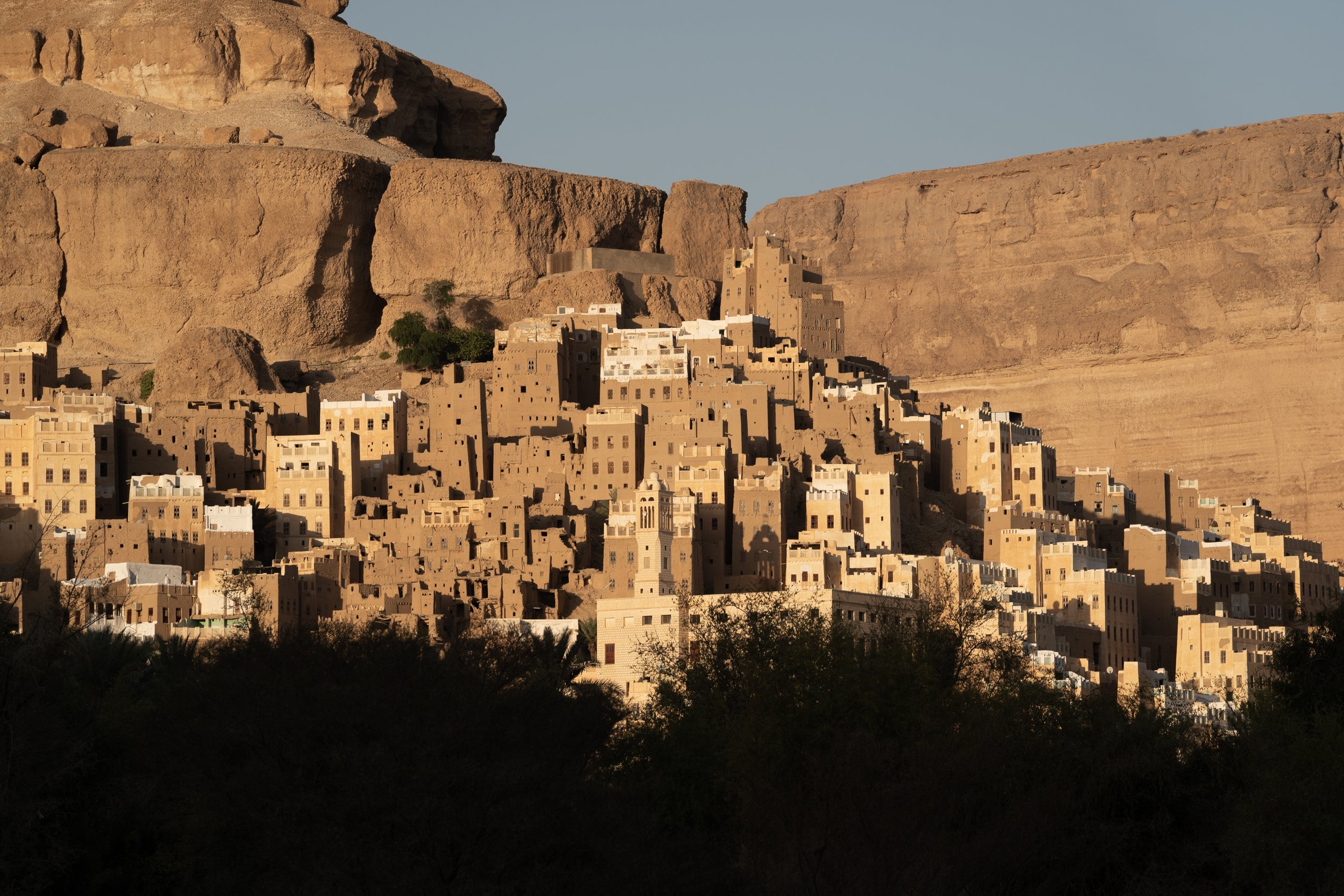
EASTERN YEMEN
Overland Journey
This overland trip is designed to bring you across eastern Yemen, gaining an in-depth perspective from the fishing villages along the Arabian Sea, to the canyons and mud brick skyscrapers of the Hadhramaut, to the camel herding Mehri bedouins vast Empty Quarter Desert.
-
$4500 USD per person (double occupancy).
Includes:
All accommodations (best available), three meals daily, the Yemeni visa fee and travel permits, security clearance, guides, drivers with private vehicles, additional security when required by local police, entrance fees, and payment processing fees by Visa/MasterCard.
Does not include:
Any flight tickets, personal spending, insurance, additional food and drinks, tips for local staff, and anything not explicitly mentioned as included.
-
10 Days / 9 Nights in Yemen (1 night in Salalah, Oman required before and after the trip in order to buffer your departure and arrival time).
-
Maximum 6 people, minimum 3 people.
-
Salalah, Oman.
-
Moderate.
This trip is a road trip, involving many hours of driving in a private vehicle. There are many city walks and short hikes. No technical skills are needed to participate.
Keep in mind, Yemen is a hot, desert country and temperatures can reach 35 degrees, especially in the summer.
Coming Micro Group Departures
(or contact us to arrange a private trip.)
THE LOCATION
Yemen's Hadhramaut and Al Mahrah regions unveil a tapestry of history, culture, and natural beauty. Rooted in ancient times along the Frankincense Trail, this region witnessed the rise and fall of powerful empires, leaving behind awe-inspiring architectural wonders such as the towering mud-brick skyscrapers of Shibam and the last Sultan’s palace in Qishn.
While recent years brought challenges with terrorism and instability (Al Qaeda held the region from 2014 to 2016), eastern Yemen has emerged from the shadows, embracing a more stable present, if fraught with economic challenges.
From the bustling markets of Tarim and Mukalla to the narrow canyons and mud villages of Wadi Do’an, the fishing villages along the Arabian Sea, and the vast sands of the Empty Quarter Desert, this corner of Arabia offers a mesmerizing journey through time.
THE ACTIVITIES
Departing Salalah, Oman, you travel first along the coast, visiting fishing villages and wildly beautiful beaches, before reaching the bustling port city of Al Mukalla.
After wandering the souqs and promenade in Mukalla, you venture inland, into the canyons that form the backbone of Hadhrami culture. Mud brick villages line the canyon floor, as the deep-cut wadis offer protection and seclusion.
Further north, the valley widens, giving way to Shibam, where you can meander the city’s narrow alleyways, meet locals, and explore this UNESCO world heritage town. Nearby Seiyun and Terim are steeped in Sufi culture, where you visit palaces, schools, and mosques.
On the way back to Oman, you spend a night in the Empty Quarter Desert with Mehri bedouins who raise their camels off the bushes in this unforgiving environment.
THE PEOPLE
Introducing Kais Al Qalisi, a dedicated Yemeni travel company owner, guide, fixer, and documentary filmmaker based in Sana'a. With a rich experience spanning two decades, Kais has been organizing diverse trips across Yemen from north to south.
While he resides in Sana'a with his wife and three daughters, he frequently travels to Hadhramaut and Mahrah in southern Yemen to arrange engaging tours, given the current travel restrictions in northern Yemen.
In addition to his professional pursuits, Kais actively supports charitable projects, focusing on empowering women and assisting families in Sana'a.
Kais and his team are responsible for this trip from start to finish.
THE COST
The total cost of this trip is $4500 USD per person based on a group size of 3-4 individuals.
The trip includes all accommodations (best available), three meals daily, the Yemeni visa fee and travel permits, security clearance, guides, drivers with private vehicles, additional security when required by local police, entrance fees, and payment processing fees by Visa/MasterCard.
The cost does not include any flight tickets, personal spending, insurance, additional food and drinks, tips for local staff, and anything not explicitly mentioned as included.
-
Your guide will pick you up from your accommodation in Salalah in the morning and drive you two hours to the Yemeni border at Sarfayt. You will proceed through Omani and Yemeni immigration, collecting your Yemeni visa on arrival.
You will then drive along the spectacular Mehri coast, stopping along the way for photos, to the border town of Al Ghaydah, where you will check into your accommodation for the evening. After dinner, you can wander the Al Ghaydah night market.
-
Today you will explore more of the Mehri coast, driving to the sardine processing town of Seihood, where hundreds of fishermen bring their wooden dhows full of fish to be sold and processed in town. You will then visit Qishn town, which was once the home of the Sultan of the Al Mahrah and Socotra Sultanate. You can tour the palace in town.
In the late afternoon, you’ll drive to a tiny fishing village. This is a spectacular place to observe traditional fishing life, as villagers head out to get their daily catch around sunset, while children play football on the beach.
Overnight camping on the beach.
-
After breakfast, you will go out on a fisherman’s boat to snorkel and swim in the sea caves around the rocky coastline. In the afternoon you can relax on the spectacular beaches around Khiseet, as well as go for a swim in the warm, crystal clear waters of the Arabian Sea.
Overnight: camping on the beach.
-
After breakfast, you’ll pack up camp and drive along the coast all the way to the city of Al Mukalla, the capital of the Hadhramaut region.
Mukalla is the most significant city in eastern Yemen. Following the Arab Spring that saw Yemen’s government collapse and insurgents take control of various parts of the country, the city found itself under the control of Al Qaeda in the Arabian Peninsula for an entire year before forces from the United Arab Emirates were able to dislodge them. Still today, UAE troops and aligned Yemeni mercenaries maintain a presence in and around the city.
Once you arrive in the city, you can go for a nice walk around the promenade, fishing harbor, and see the evening souq.
Overnight at the Mukalla Hotel.
-
In the morning, you’ll visit the market for breakfast, where you’ll see fish being bought and sold, and then breakfast stalls open for you to sample the local cuisine.
Then you’ll tour around some significant sights in the Mukalla area and walk around the historic city center.
You’ll then begin the drive north, into the deep interior of central Yemen. Driving along the desert plateau, you won’t notice it until you’re upon it— but steep canyon walls give way to a narrow, branching semi-fertile valley called Do’an. A deeply conservative yet culturally distinct civilization formed within this valley and continues with its traditions today. Mud brick towns cling to where the canyon walls meet the ground, while the center is reserved for farm and grazing land. Almost no structures exist on the top of the canyon— nearly all life, save for a few bedouins, live at the bottom, some 300 meters below the natural canyon walls.
You’ll arrive at the Hayd Al Jazil Resort in the late afternoon to enjoy a dip in the pool and a spectacular sunset over this incredible valley.
Overnight: Hayd Al Jazil Resort.
-
After breakfast, you will drive down to the furthest southern reaches of Wadi Do’an. The first stop will be the village of Qarn Majed, followed by Budha, Al Khuraiba, and finally to Al Rubat. These villages are the most remote and most traditional in the region and maintain their architectural traditions better than anywhere else in the area.
Al Rubat is the ancestrial homeland of the Bin Laden family. Notoriously famous for jihadist Osama Bin Laden, his father, the billionaire construction magnate Mohammed Bin Laden was born in a home in the village before moving to Saudi Arabia as a young man. You can quickly visit the outside of the now-abandoned Bin Laden family home in the village.
In the afternoon, you will go on a hike down from Haid Al Jazil to the bottom of the canyon, passing through villages, date palm groves, and grazing grounds where women bring their goats.
Overnight at Haid Al Jazil Resort.
-
After breakfast at the Haid Al Jazil Resort, you’ll drive north towards the center of the Hadhramaut, where the valley widens significantly.
You will visit the village of Sif to tour the “white palace” over the village, and possibly stop by a school to meet teachers and students.
You’ll then stop in the architecturally-stunning Hajhrain town, where you can meet beekeepers and learn about Sedr honey, one of the most expensive high-grade honey in the world.
In the later afternoon, you’ll arrive in the UNESCO World Heritage town of Shibam. You’ll spend the entire afternoon wandering the maze-like streets of this incredible village of living history. As the sun begins to set, you will drive to a nearby viewpoint over the city to listen to the call to prayer.
Overnight at the Al Houta Palace Hotel.
-
After breakfast at the Al Houta Palace Hotel, you will continue to the center of Seiyun city to visit the Al Kathiri palace, once the home of the sultan and currently a museum, which documents the Hadhramaut region’s history from antiquity until the first film cameras were around.
From the palace, you will continue to Seiyun’s honey bazaar and farmers’ market to wander. Then you will drive one hour to Tarim, a nearby city in the Hadhramaut valley famed for its Sufi Islamic education centers.
Once in Tarim, you’ll have lunch and will go to the nearby town of Aynat to visit the tombs and shrines of the region’s great Sufi saints. As the sun begins to lower the souq comes alive with activity. You will explore the old town and market by foot, where many of the city’s original mud buildings still stand and shops continue to operate as they always have. You can listen to the call to prayer from the historic Almihdhar Mosque, before returning to Seiyun for the evening.
Overnight at the Al Houta Palace Hotel.
-
After breakfast, you’ll depart from Seiyun and head east, back towards the Yemen-Oman border into the scrubby Empty Quarter Desert. Here, Mehri bedouin families graze their camels on scrub bushes along the edge of the desert. You’ll spend the night camping around the campfire with a family of camel-raising bedouins.
-
You’ll wake up under the stars of the desert. You’ll drive out to a patch of sand dunes to feel the vastness of this inhospitable desert before continuing by road to the border town of Shehn. Here, you’ll have lunch before continuing to pass through Yemeni immigration and customs.
You’ll be met on the Omani side of the border by a different guide who will bring you down to Salalah.
The following itinerary is meant to serve as a guideline for the trip, rather than an exact play-by-play. As is true of all inertia experiences, we leave room for sporadic interactions, unforeseen opportunities, and time buffers to compensate for unexpected scenarios.
COASTAL YEMEN
Get way off the beaten path to explore tiny fishing communities and incredible Indian Ocean beaches.
WADI DO’AN
Travel through the fabled Do’an Valley and meet locals along the way in this spectacular region.
EXPLORE SHIBAM
Meander through the Manhattan of Arabia with its 11-story mud skyscrapers still lived in today.
EMPTY QUARTER DESERT
Meet Mehri Bedouins in the vast nothingness of Yemen’s Empty Quarter Desert.
MICRO GROUP TRIPS
All Micro Group Trips are limited to a fixed maximum and a minimum number of participants (2~6 people) to ensure a safe, intimate, and sustainable experience.
If available, fixed departure dates are listed below. Click on a date to sign up.
If no trip dates are available, private trips or extra dates can be organized according to your schedule pending our guides’ availability. Contact us to arrange a private trip.
Want to travel independently or don’t see dates that work with your schedule?
Contact us to arrange a private trip instead.
-
You will stay in small local hotels throughout the trip. While they are certainly not particularly fancy, they are not bad either and are both full of character as well as Yemeni hospitality. Don’t expect any luxury, but you can expect slow wifi, running water (sometimes hot), and a clean bed.
-
The safety and security situation in eastern and southern Yemen, specifically in Al Mahrah, Hadhramaut, Socotra, and the city of Aden has improved significantly since UAE and Saudi forces moved into the area in 2016-2017. While risks still most certainly exist, with an experienced team these risks can be significantly mitigated. Learn more by reading our Safety Guide to Southern Yemen.
As a precaution, our team receives regular security reports from the local officials in each town we visit. Should anything seem off, we do not hesitate to change an itinerary or take away a destination if it requires passing through or staying in places we do not feel comfortable. Moreover, we will not hesitate to organize a land or air extraction via either one of the three viable overland border points or Seiyun Airport, should this be necessary.
-
Yemeni society is deeply conservative and as a general rule of thumb, all visitors on our trips are required to dress in a way that enables them to blend in as much as possible.
For men, this means long pants, shirts that cover the shoulders, or Yemeni traditional dress (a fouta— man skirt— and a button-down shirt).
For women, this means a black Abaya and headscarf (at all times while in public), and occasionally a niqab (face veil) for certain checkpoints or more challenging situations, should they arise.
-
Yemen is a deeply conservative Islamic country where traditional male-dominated gender roles are primarily enforced. Many locals see foreign women as a “third gender” where they are not held to the same expectations as Yemeni Muslim women. This means foreign women are mostly able to access the spaces for both men and women, whereas foreign men may only access spaces for men.
This does not mean foreign women are exempt from Yemeni dress standards. All women in Yemen are expected to be fully covered in public, and tourists are no exception. Black abayas and hijabs are required for women’s safety and security in Yemen. At times, you may be expected to wear a niqab.
Touching a member of the opposite sex (who is not your spouse or parent) is not common in Yemen. While many non-Muslim women hug male friends, this is not practiced in Yemen at all and would be seen as highly inappropriate in public settings.
-
Yemen Mobile has decent coverage of Hadhramaut and Mahrah, especially in the towns. Many foreign companies do not have an established relationship with Yemen Mobile, and thus will not connect to their network without a local SIM. At the time of writing (2022) local Yemen Mobile sims can be purchased in Seiyun, but will not function in iPhones.
Internet access via pre-purchased scratch-off cards is generally available in the hotels throughout your stay. While the speeds are typically slow, sending emails and whatsapp messages will not be a problem.
-
Yemen is an amazing place for landscape, architectural, and cultural photography— you are literally surrounded by endless opportunities for photographs from the deserts to the canyons to the souqs.
This being said— when looking to photograph local people, please always ask for permission first. Typically it’s not a problem to photograph men (but even still, some men in the Hadhramaut especially will have an issue with photography, as some see it as against Islam), but it is very problematic to photograph most women. Doing so without consent can lead to major reprocussions for both you and your guide.
-
Alcohol is not allowed to be carried into Yemen.
Illicit substances are also forbidden, including Marijuana.
Drones are not allowed into Yemen unless you obtain a media permit that includes drones on your gear list in advance of arrival. We can arrange this permit for professional shoots at an additional cost.
-
Yemen restricts all Israeli nationals, people born in Israel, and anyone with proof of travel to Isreal in their passports (including border stamps from Egypt and Jordan) from entering the country.
-
The local cuisine in southern Yemen is rather straightforward. You can expect a meat (chicken, sheep, goat or camel), along with a type of local salad (normally cucumbers and tomatoes with yogurt) accompanied by crispy flat bread and rice, and beans in a tomato gravy in the mornings, sometimes with a fried egg.
Along the coast, you will see a lot more fish and lobster on the menus as well.
Hummus and processed cheese is also normally available at restaurants throughout southern Yemen.
It's a good idea to communicate your needs in advance or carry your own snacks (vegans are normally treated to the same vegetable curry with pasta or rice daily).
-
Road trips through Southern and Eastern Yemen require many hours in vehicles to get between cities— this is because while the distances may not look long on a map, there are many road blocks, checkpoints, pot holes, and slow-moving trucks. We’re including an approximate driving time chart between cities below so you can get a better idea of what to expect in terms of car time.
Seiyun - Tarim :: 1 hr
Seiyun - Shiban :: 40 minutes
Seiyun - Haid Al Jazil :: 3.5 hrs
Seiyun - Mukalla :: 6.5 hrs
Mukalla - Haid Al Jazil :: 4 hrs
Mukalla - Al Ghaydah :: 6 hrs
Al Ghaydah - Surfayt Burder :: 2.5 hrs
Surfayt Border - Salalah :: 2.5 hrs
Seiyun - Thamud :: 4.5 hrs
Seiyun - Shehn Border :: 7.5 hrs
Shehn Border - Salalah :: 3 hrs
Thamud - Shehn Border :: 3 hrs
-
Almost all travelers will require a Yemeni visa in order to travel to Mainland Yemen and Socotra, and everyone requires a Security Clearance Letter. Additionally, for Mainland Yemen, you will also need a Ministry of the Interior Letter.
We will handle this process on your behalf. It takes us approximately three weeks to arrange the paperwork.
You do not need to go to any Yemeni embassy or obtain a physical visa in your passport before your trip— we apply for and receive paper visas that are issued externally from your passport in advance. You need to bring a copy of this visa to show the airline before check-in and boarding, and your original visa will be submitted to the immigration authorities when you land in Yemen.
-
For Yemen trips starting in Seiyun— Flights are available three times a week from Cairo Terminal 1 direct on Yemenia, the flagship carrier.
For trips as extensions to/from Socotra, there is a flight that connects Mukalla to Socotra every week on Monday mornings in both directions.
It is also possible to fly into Mukalla from Cairo VIA Aden once a week.
Additional flight connections into Aden Airport are technically available from Djibouti and Jeddah, but in practice are harder to schedule and more difficult to arrange.
In order to book flights to Yemen, you must purchase them in cash from a Yemenia office in the Middle East. Online ticket booking is not available for flights to Yemen.
We can provide flight booking assistance for all flights to Yemen with enough advanced warning for a fee.
For trips starting from the Omani border, Salalah (SLL) is an international airport with a good number of Gulf connections, mostly to Muscat (many times per day), Abu Dhabi and Dubai. All cross-border trips include overland transportation from Salalah, and we will arrange to pick you up from your accommodation in Salalah.
It is also now possible to provide cross-border trips to/from the Saudi Arabian border crossing near Sharorah in the Empty Quarter Desert.
-
Travelers to Yemen should be aware of a few health and safety concerns. The remote location and limited medical facilities in the country can pose challenges in case of emergencies or serious illnesses. It is advisable to have travel insurance that covers medical evacuation from Yemen. There are hospitals in Mukalla, Seiyun, Tarim, and Al Ghaydah, that can provide basic health care, but for anything serious, an evac would be required. Prescription medications are difficult to find in Yemen and supplies are severely limited. Come prepared.
Finding an insurance company that will cover you in Yemen is also a challenge. Travelers should check if they qualify for BattleFace insurance, as they specialize in travel advisory countries.
Some companies may offer kidnap and random reimbursement insurance.
Insurance coverage is not required to participate in this trip, but it is recommended.








